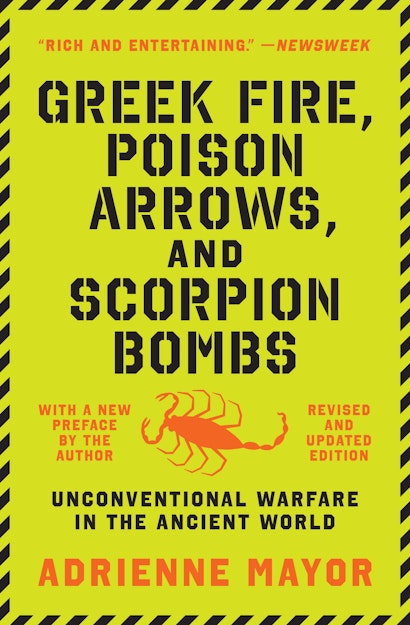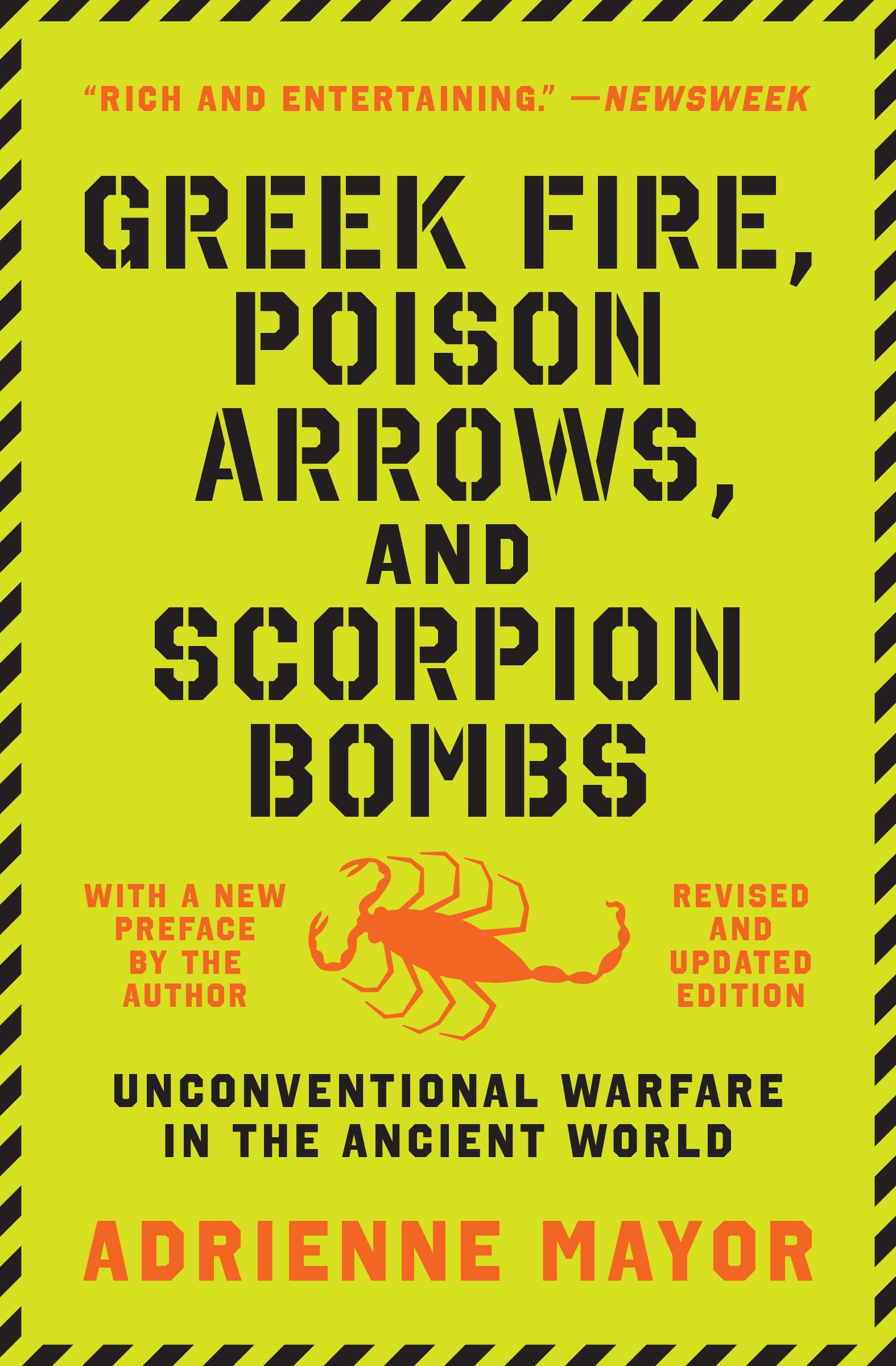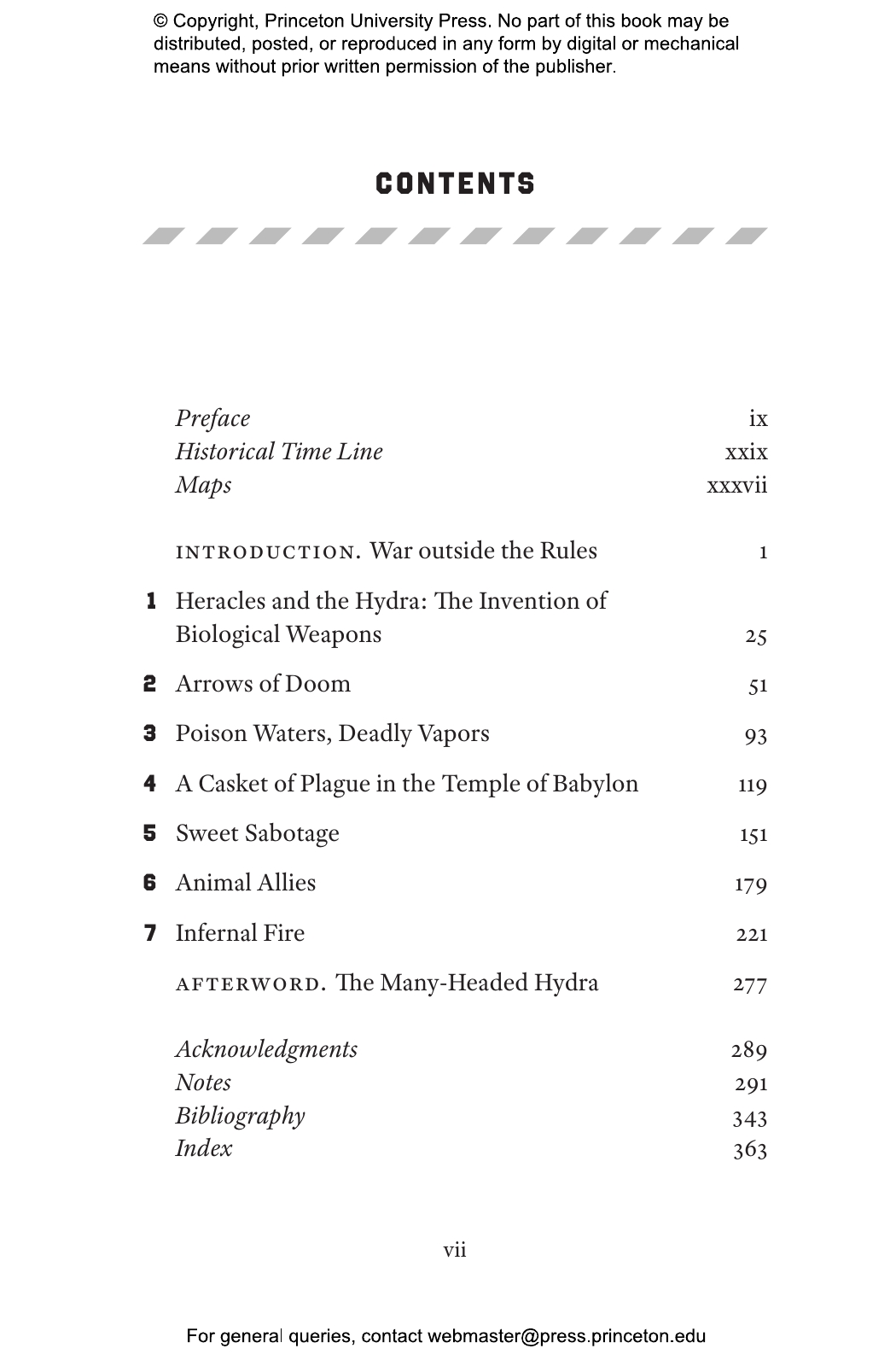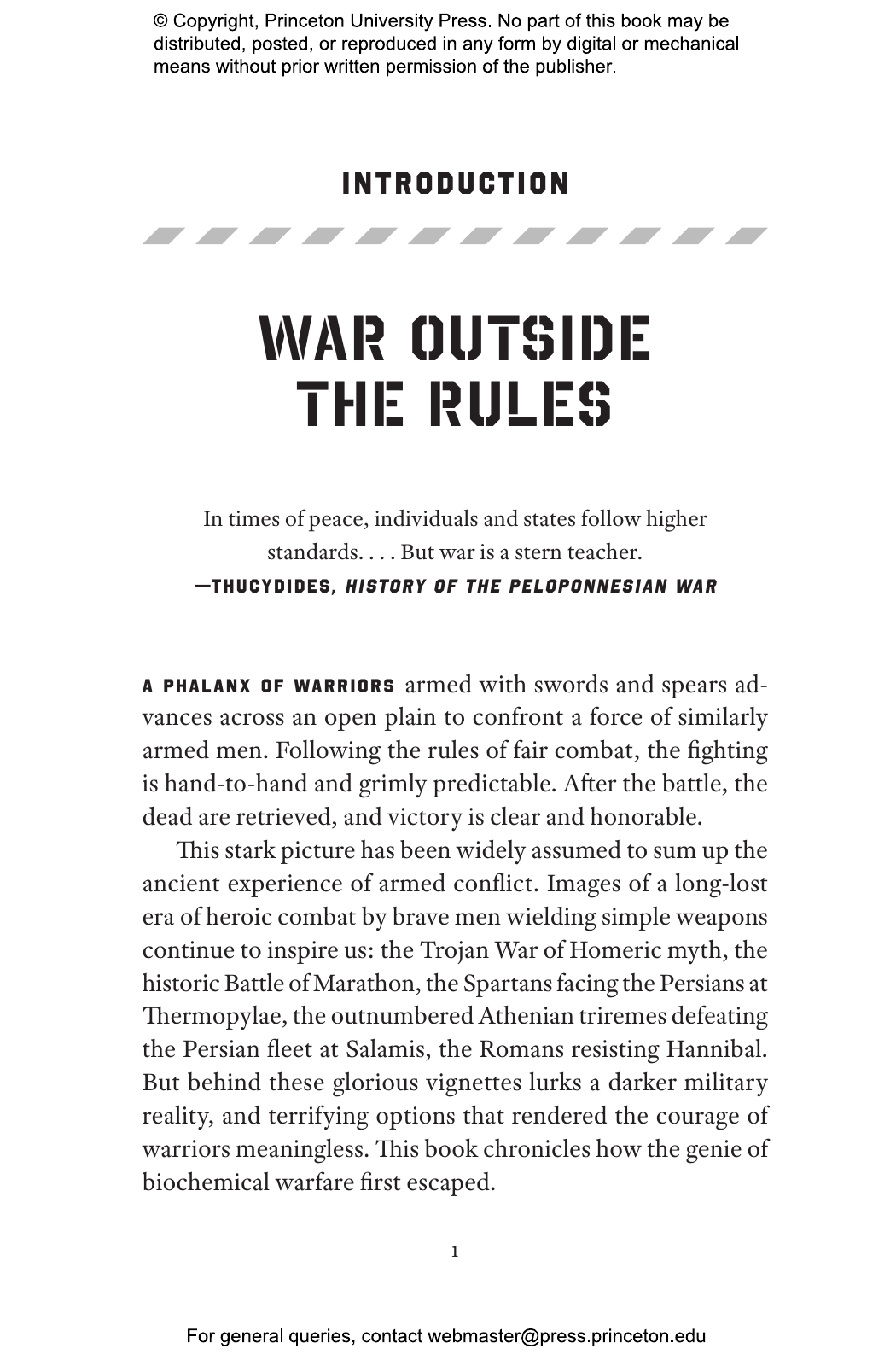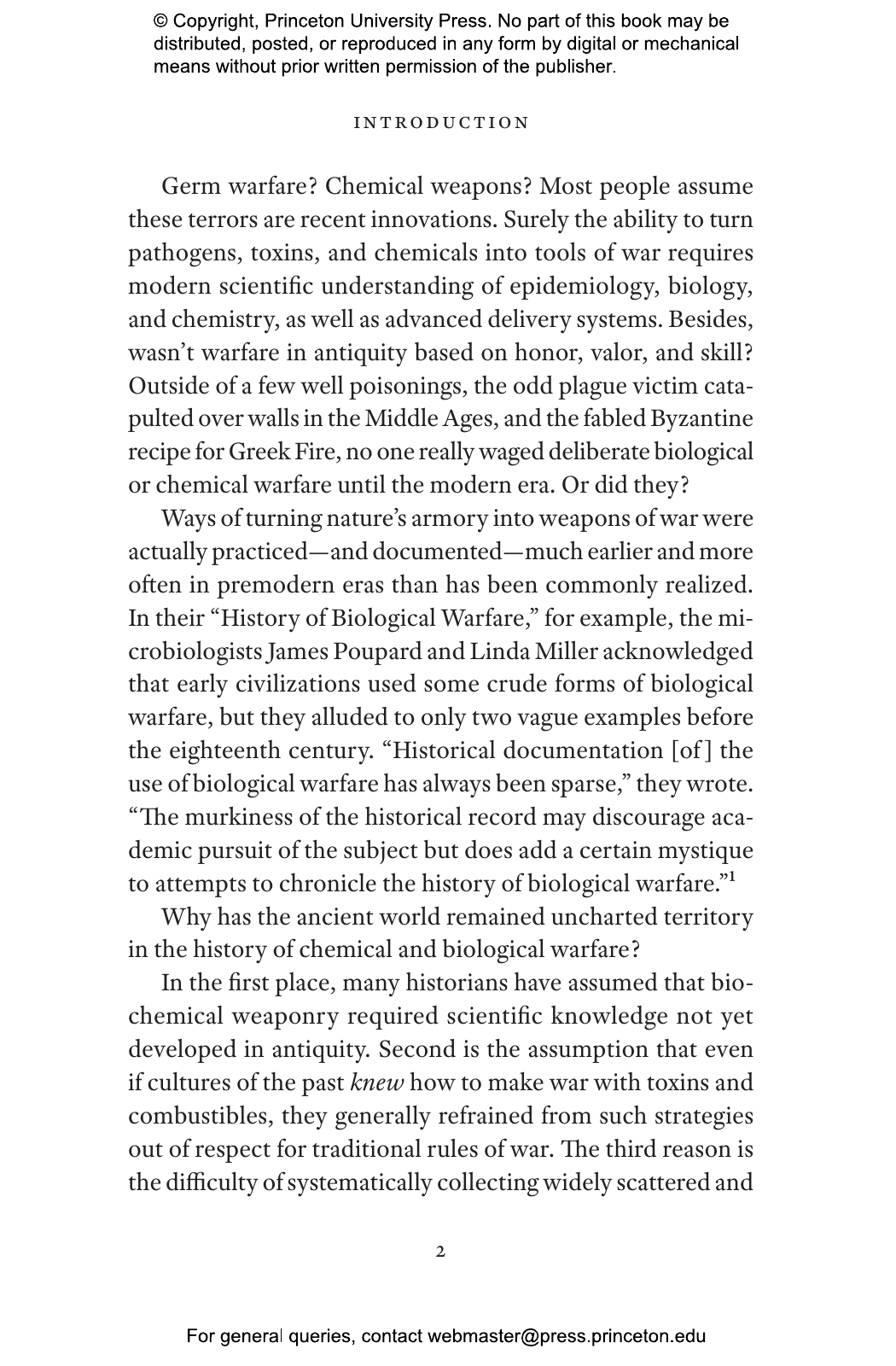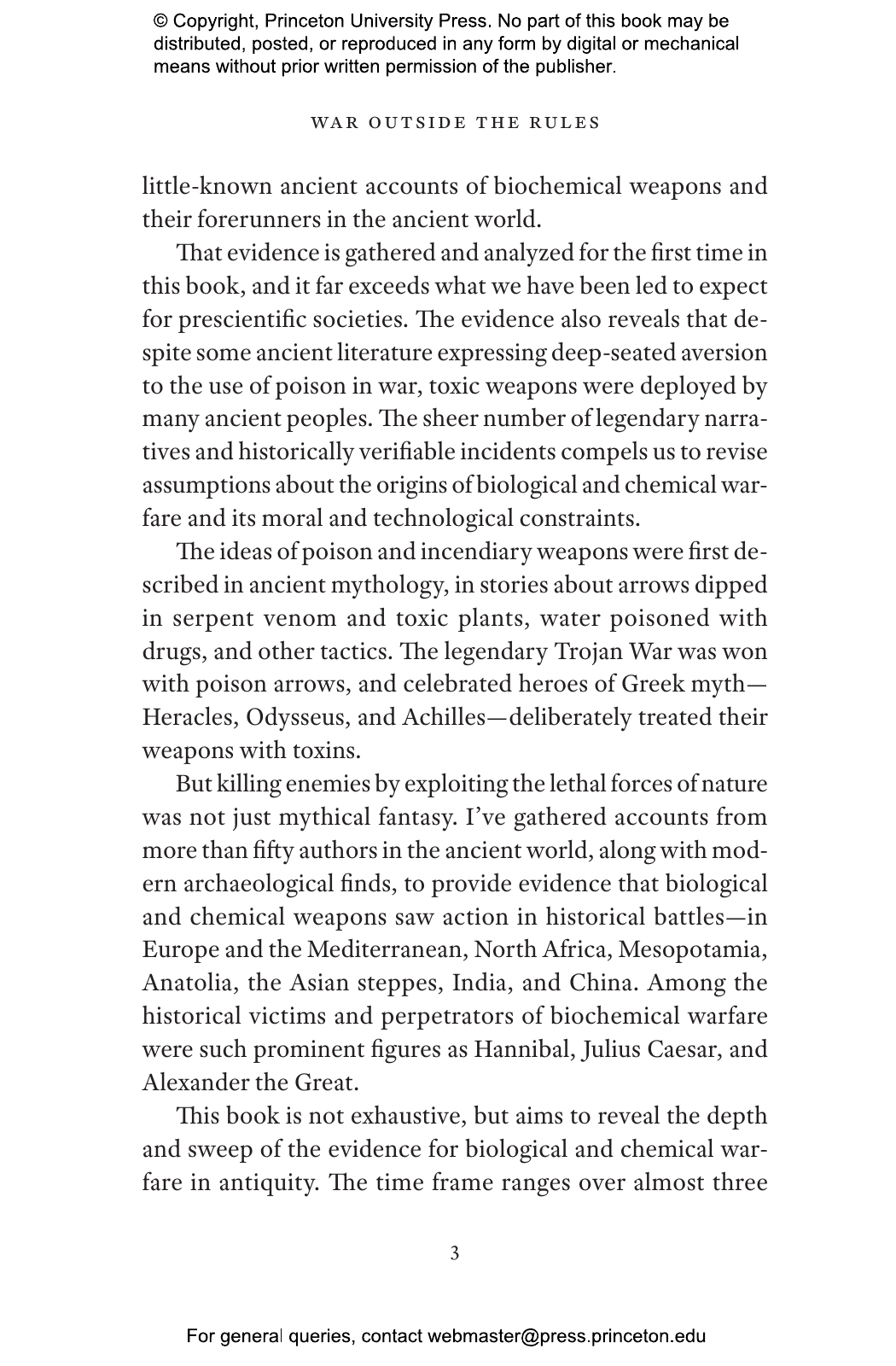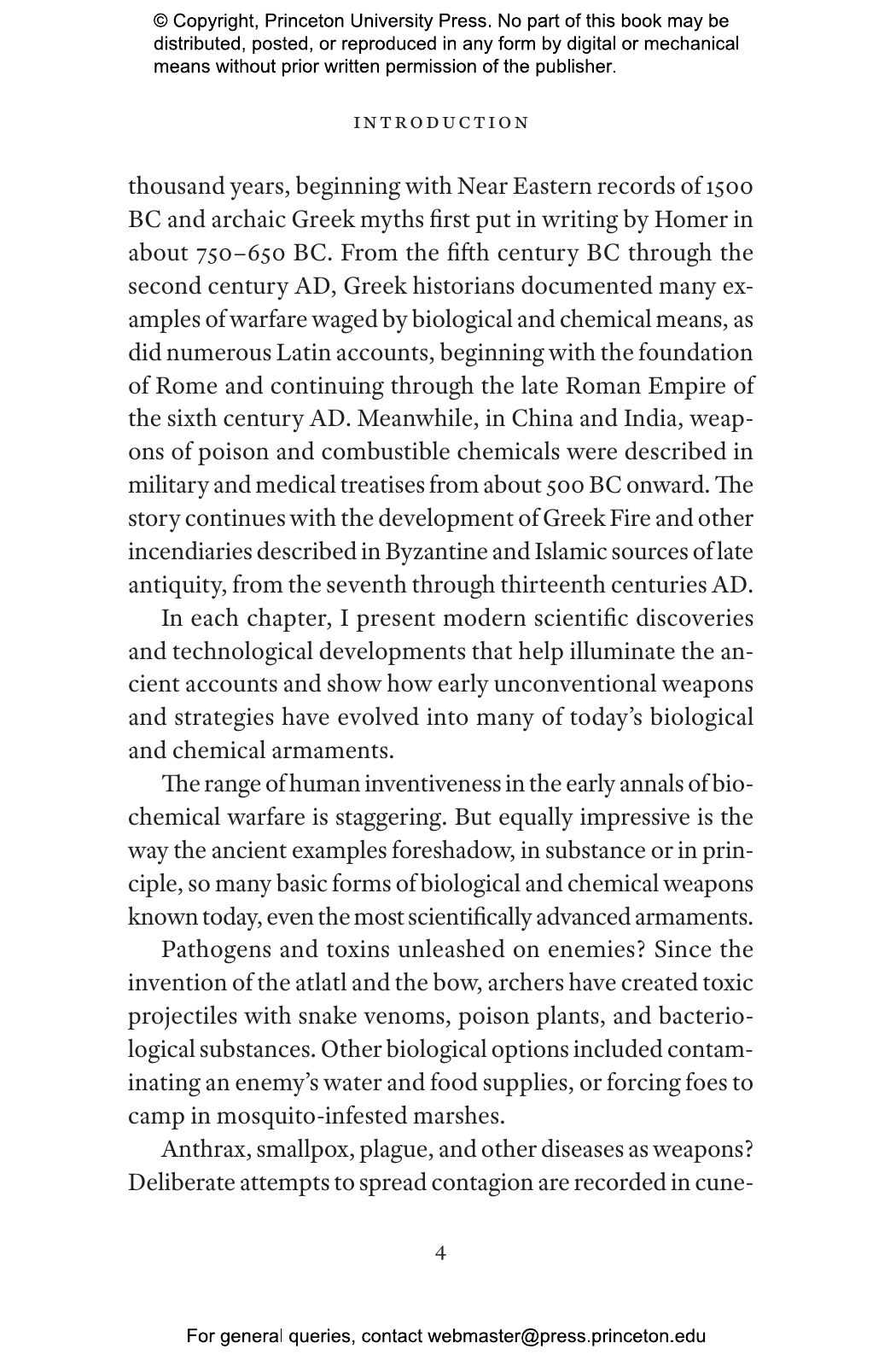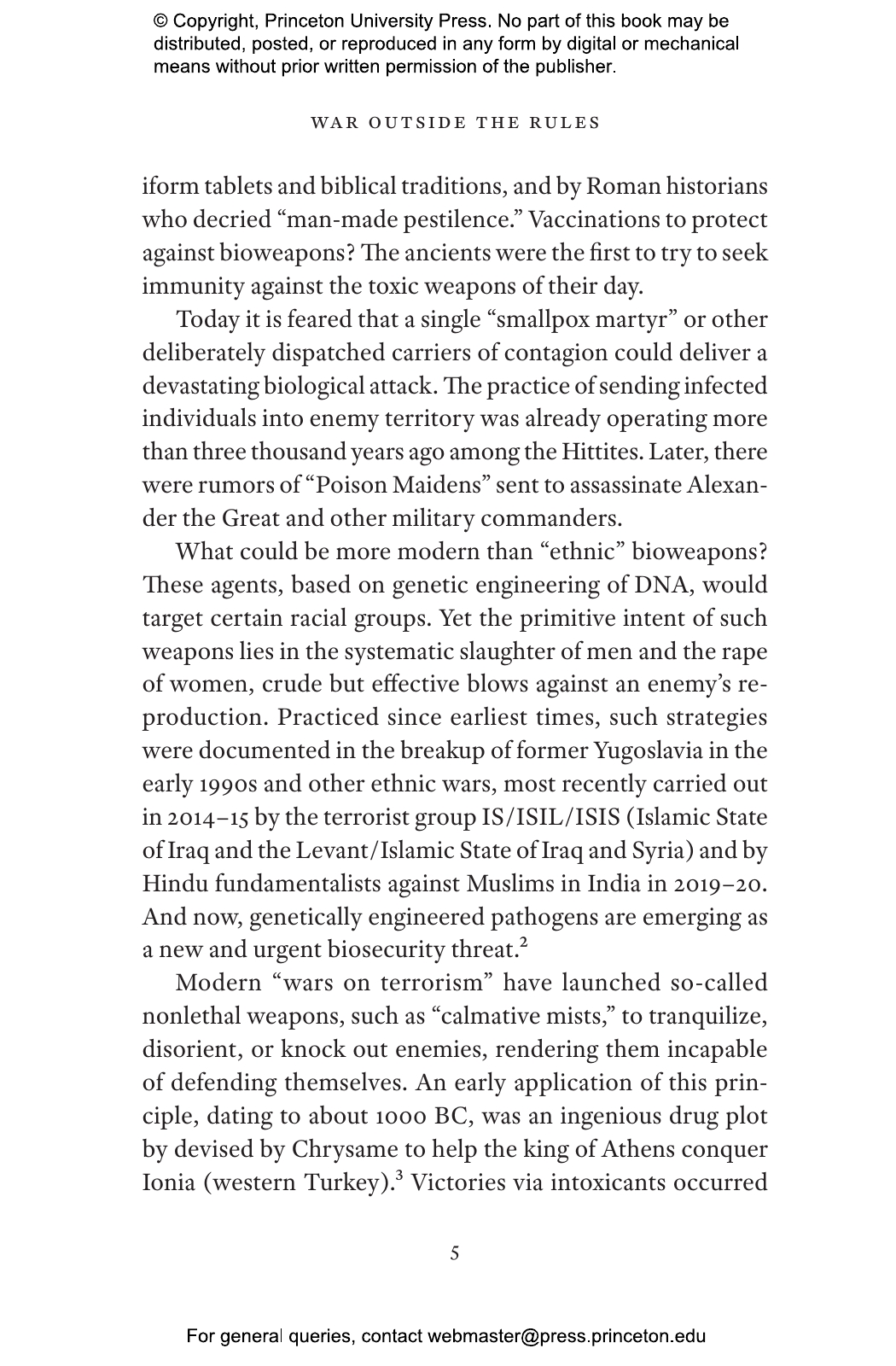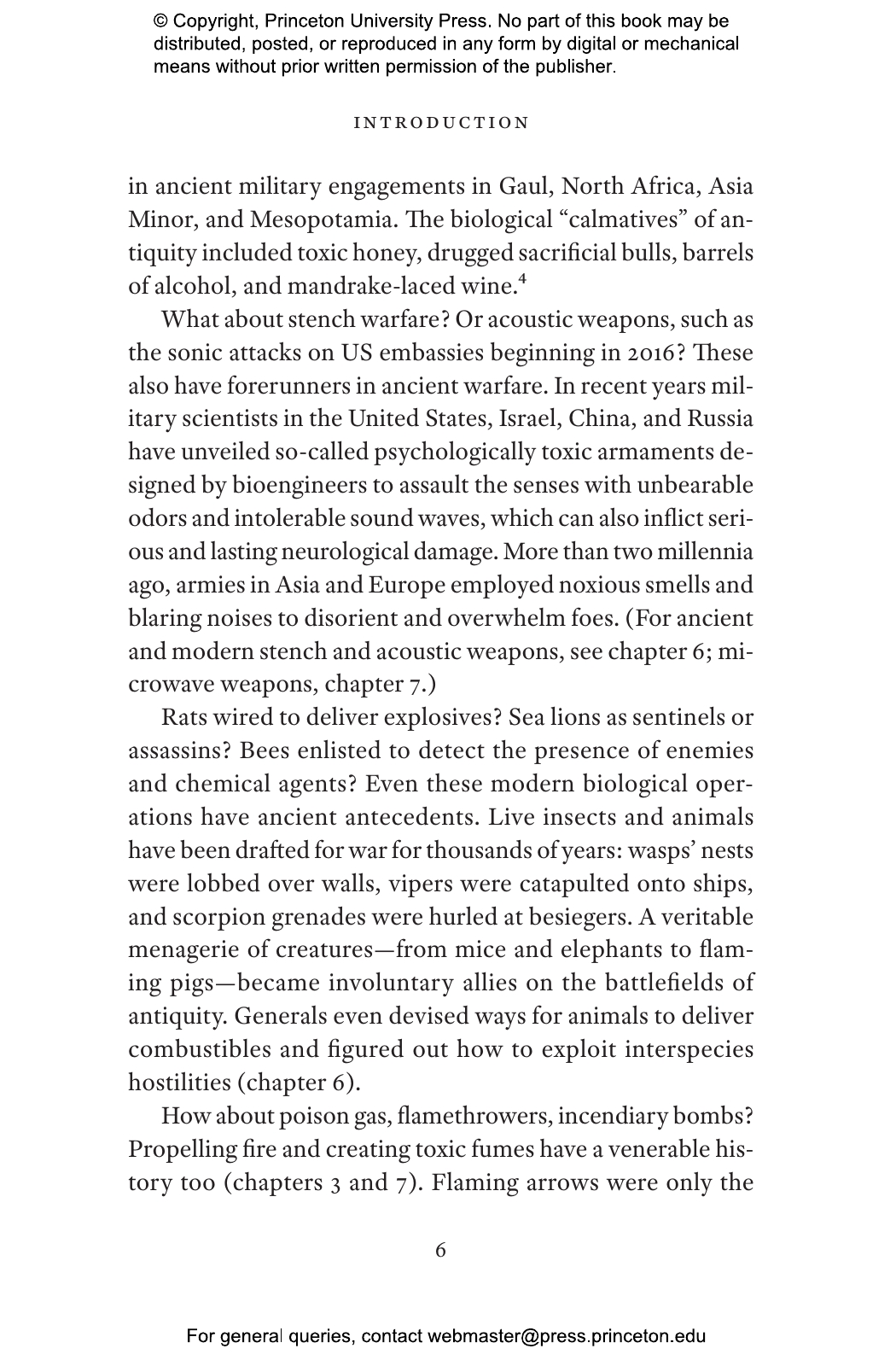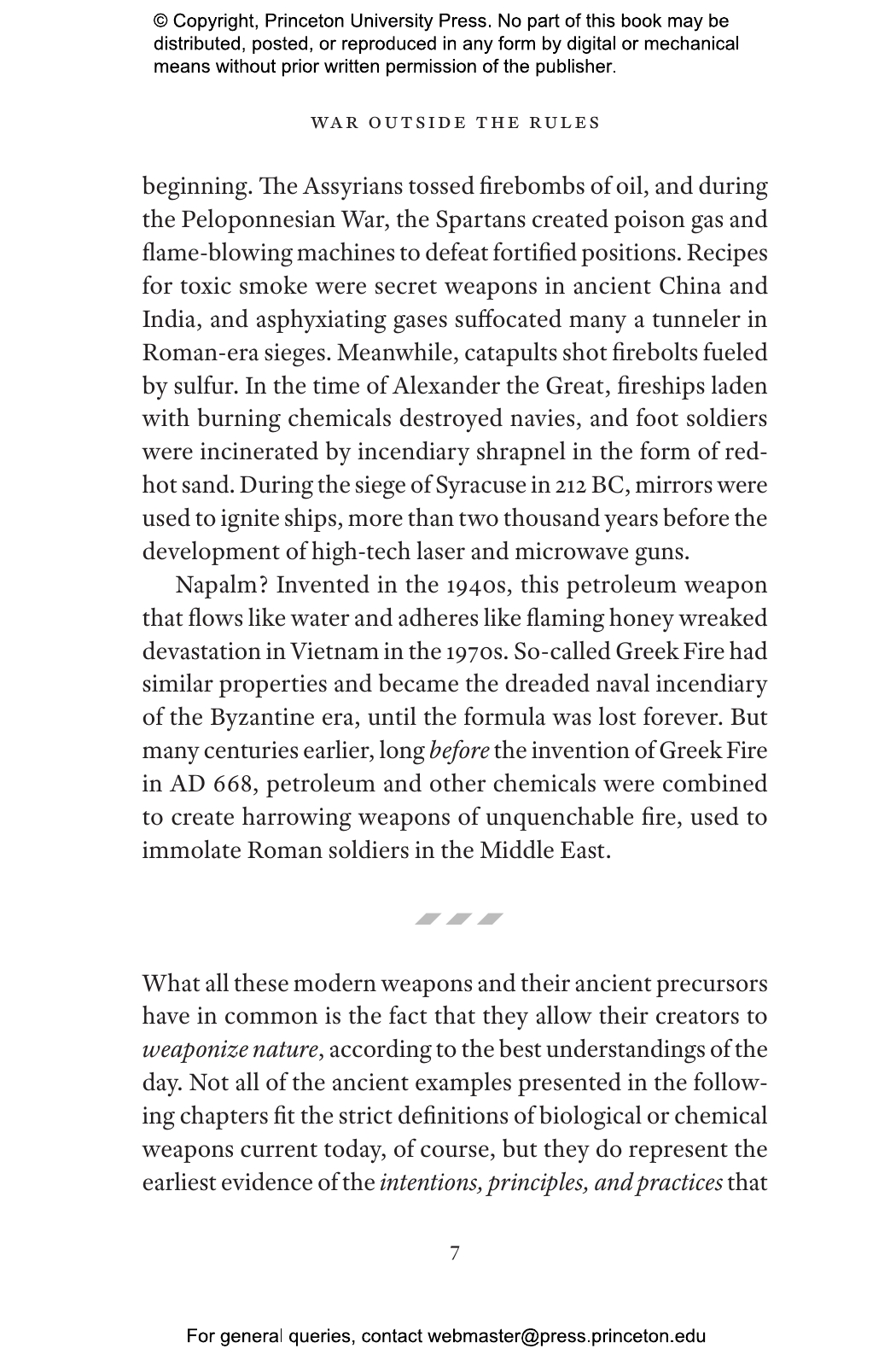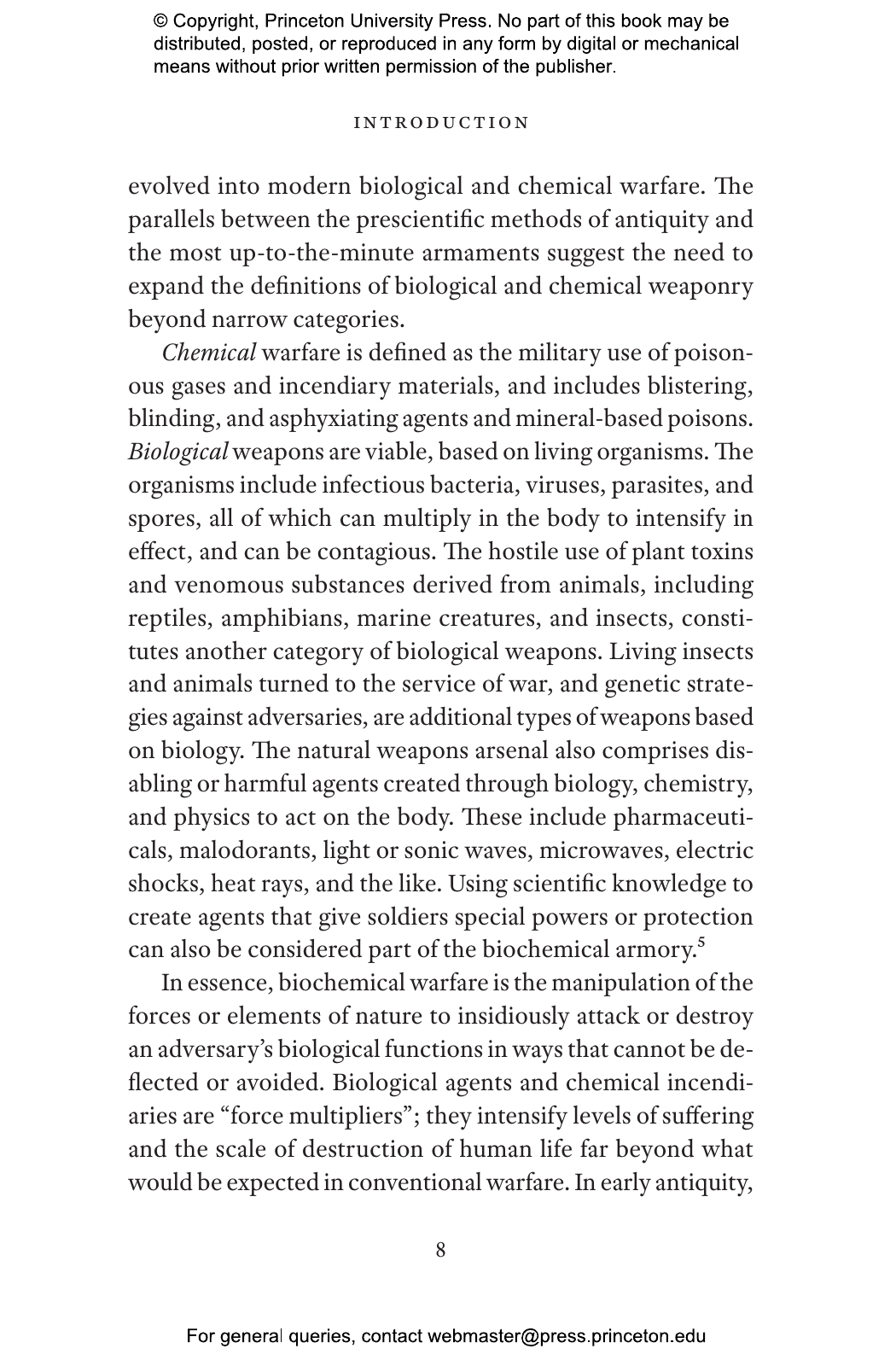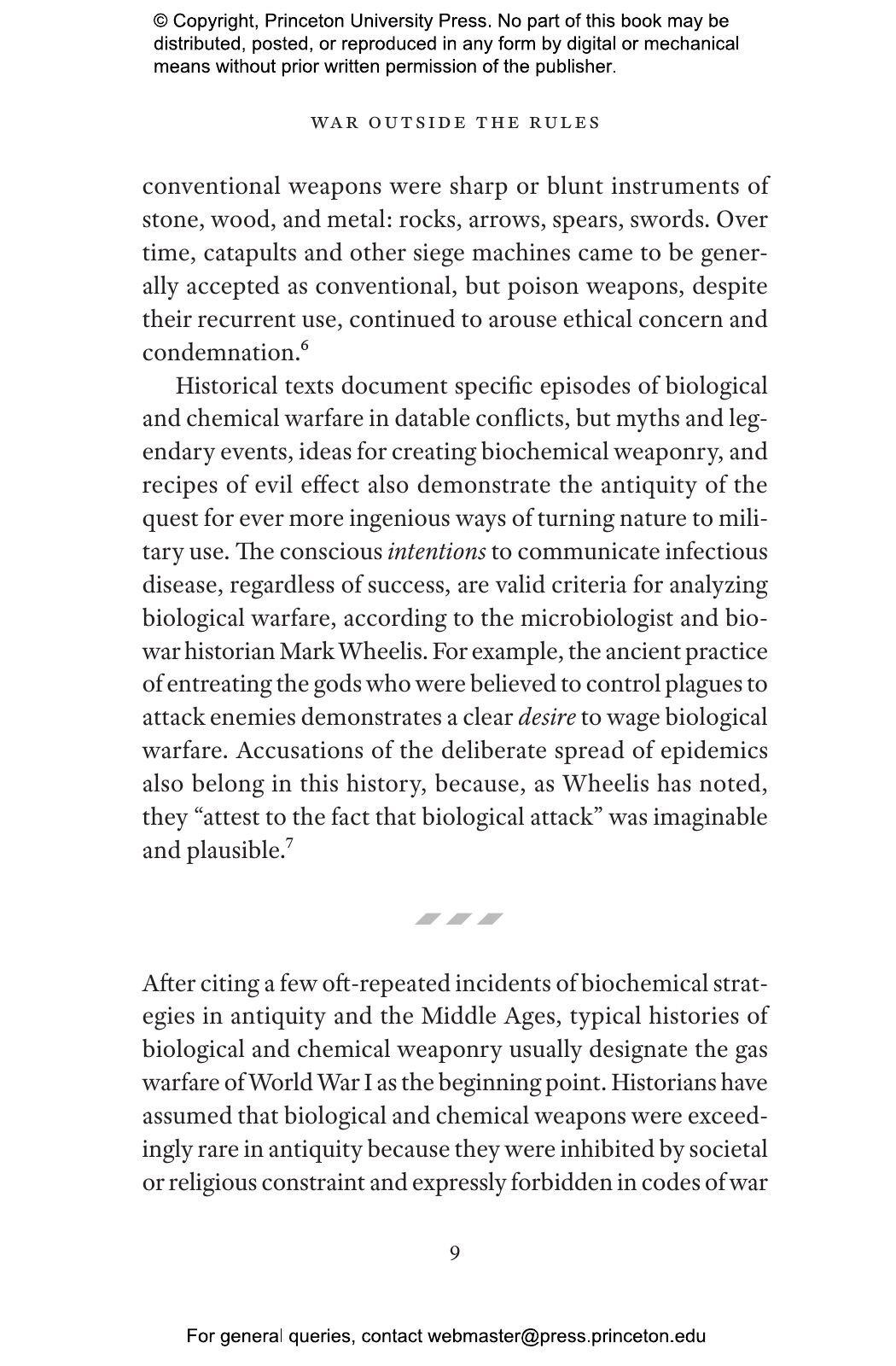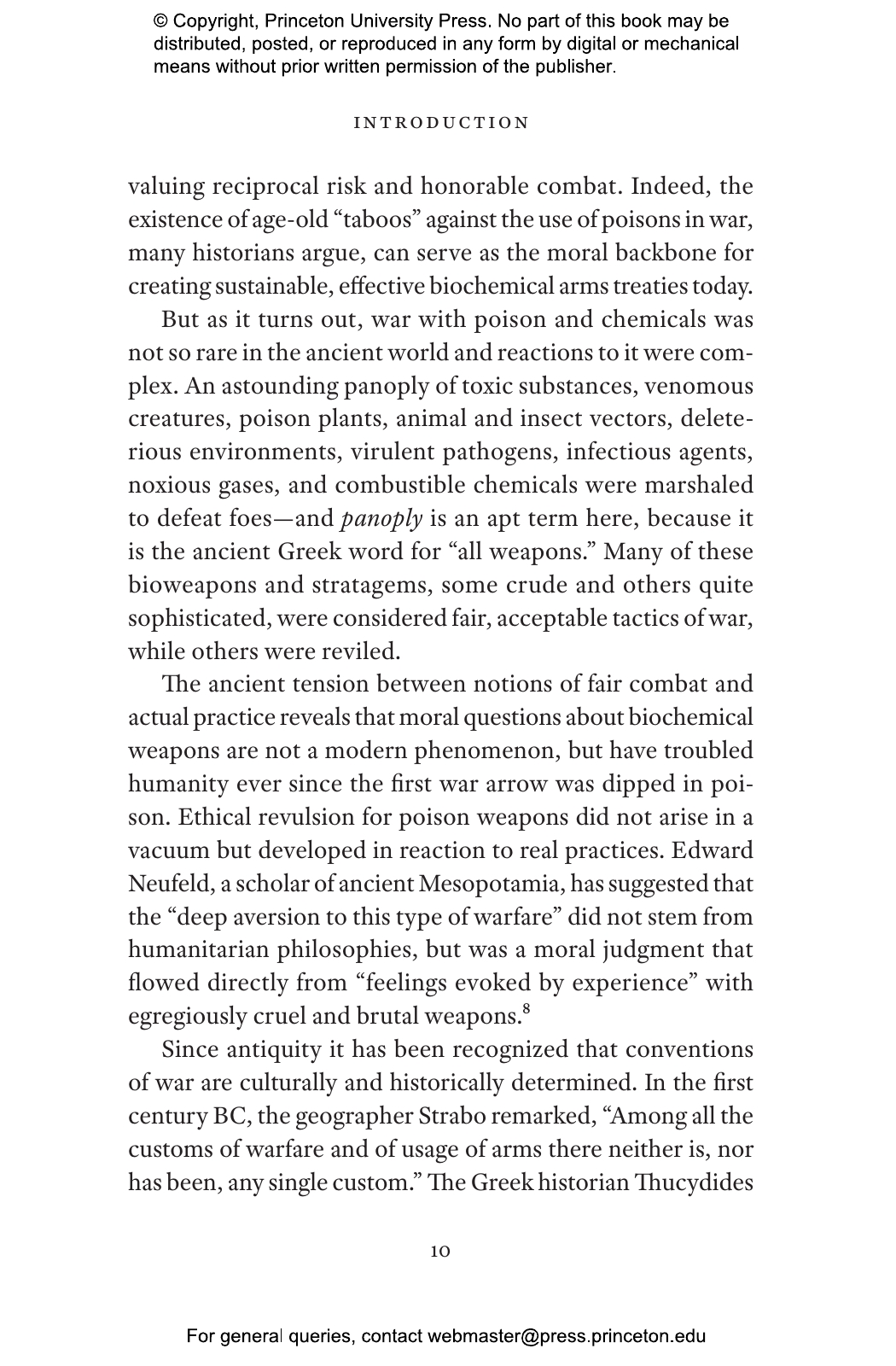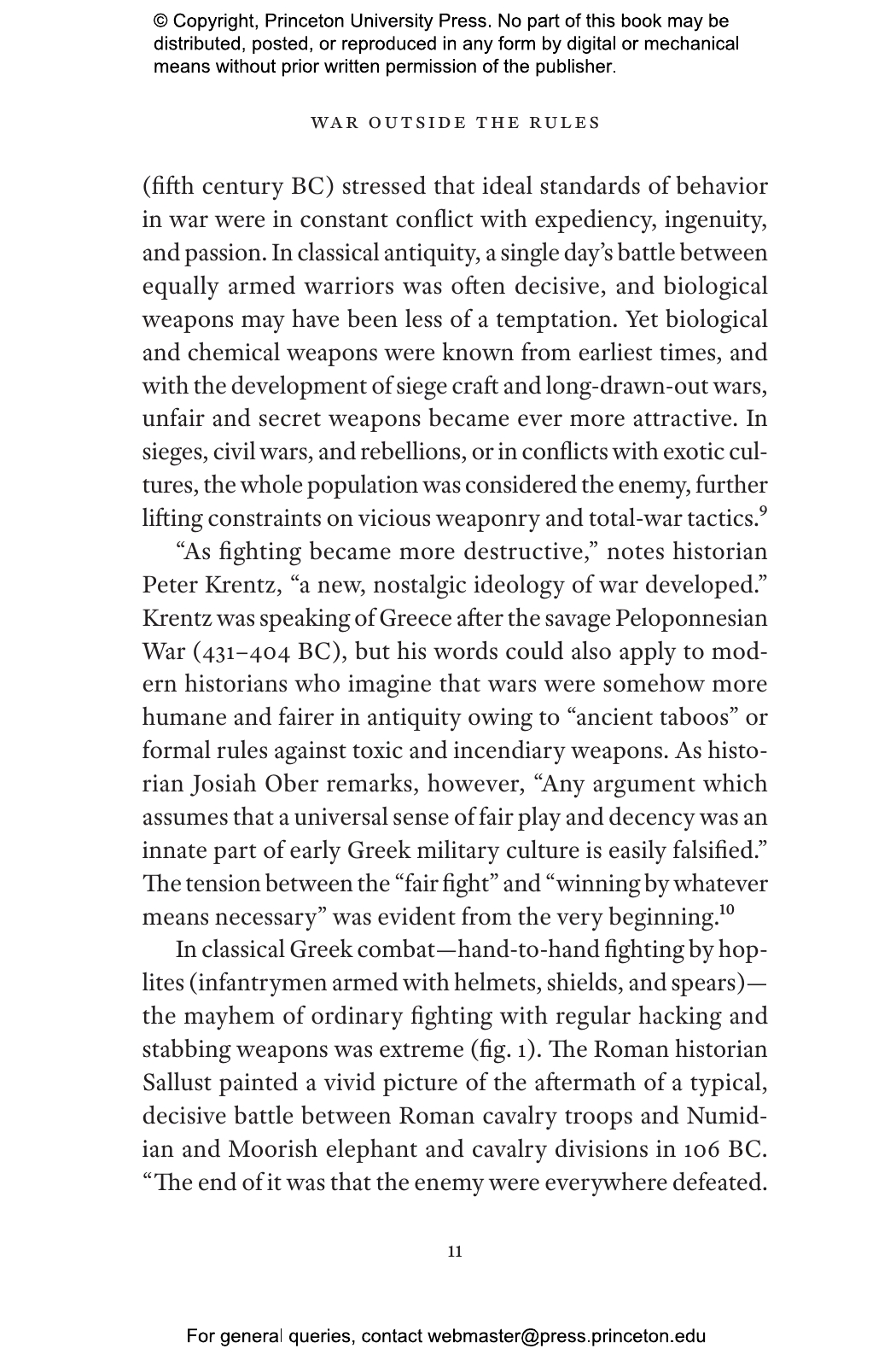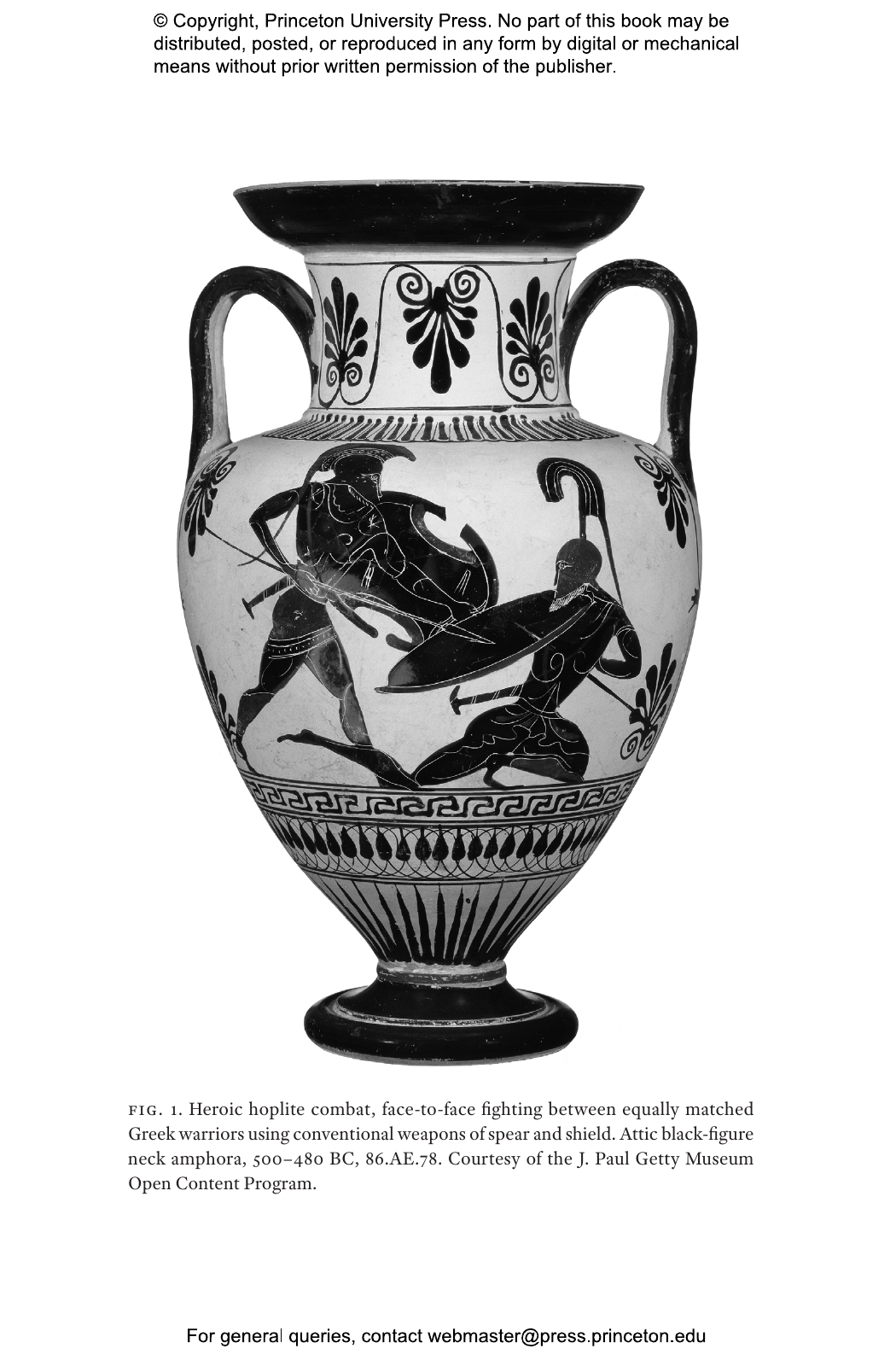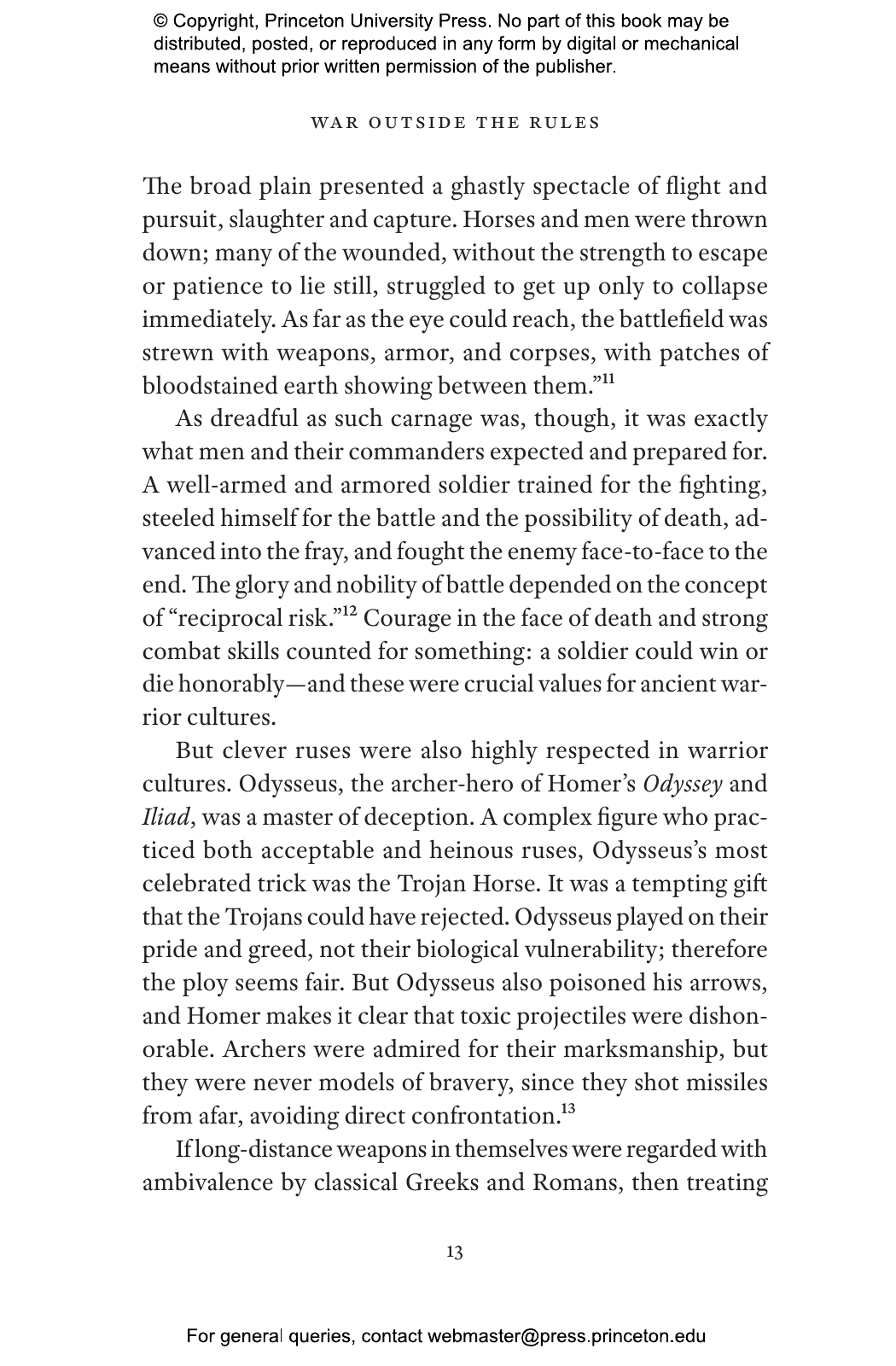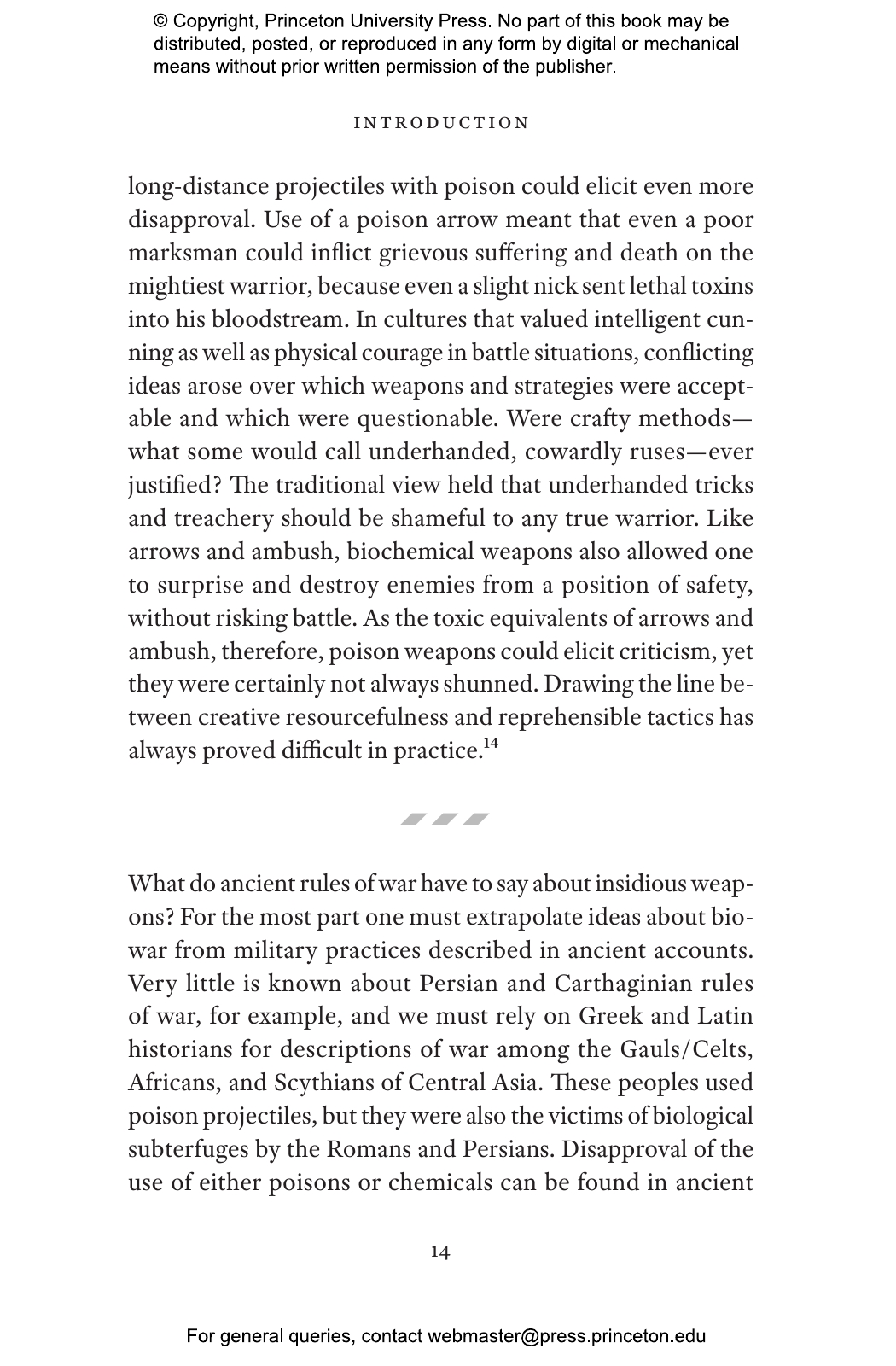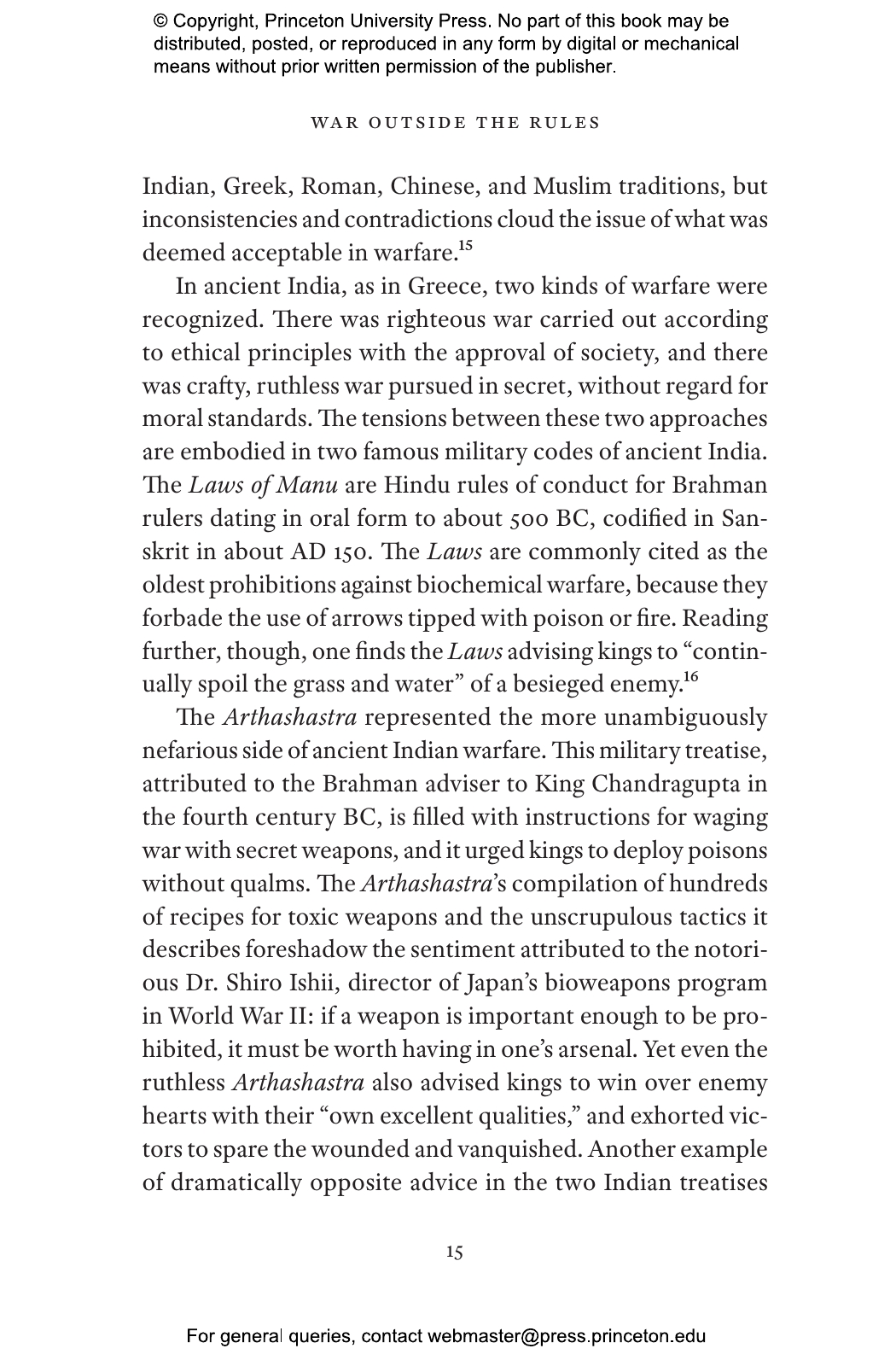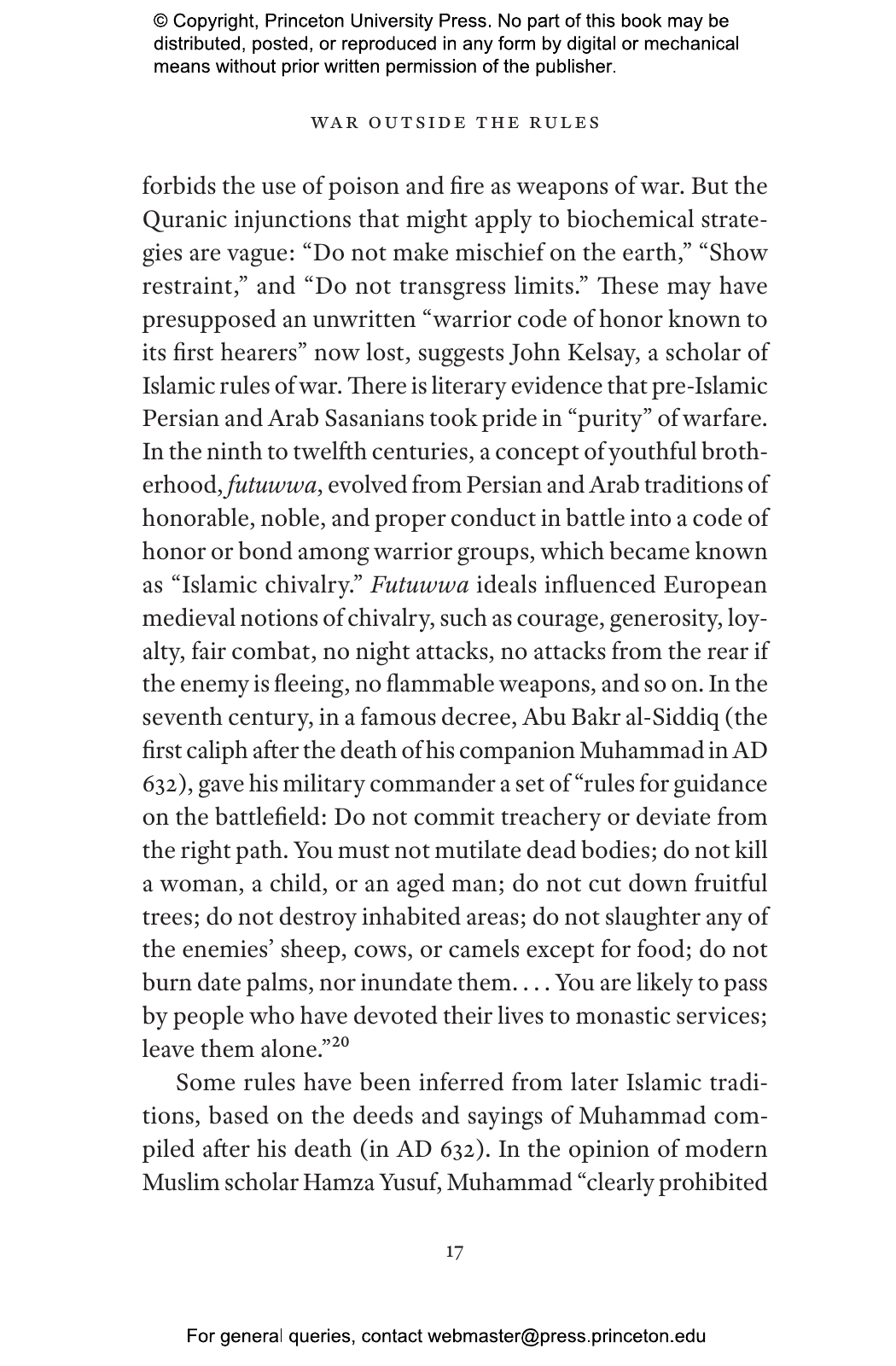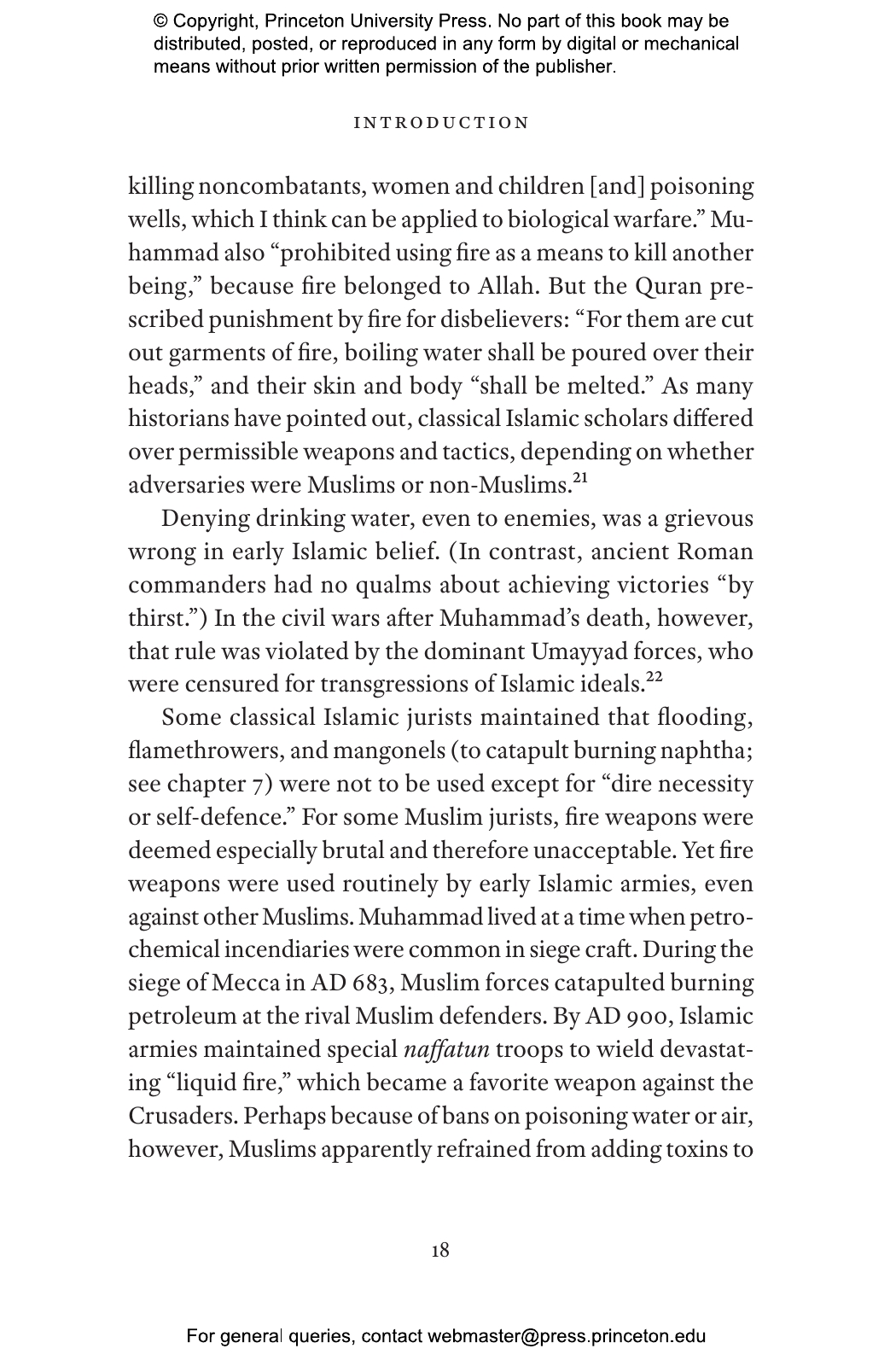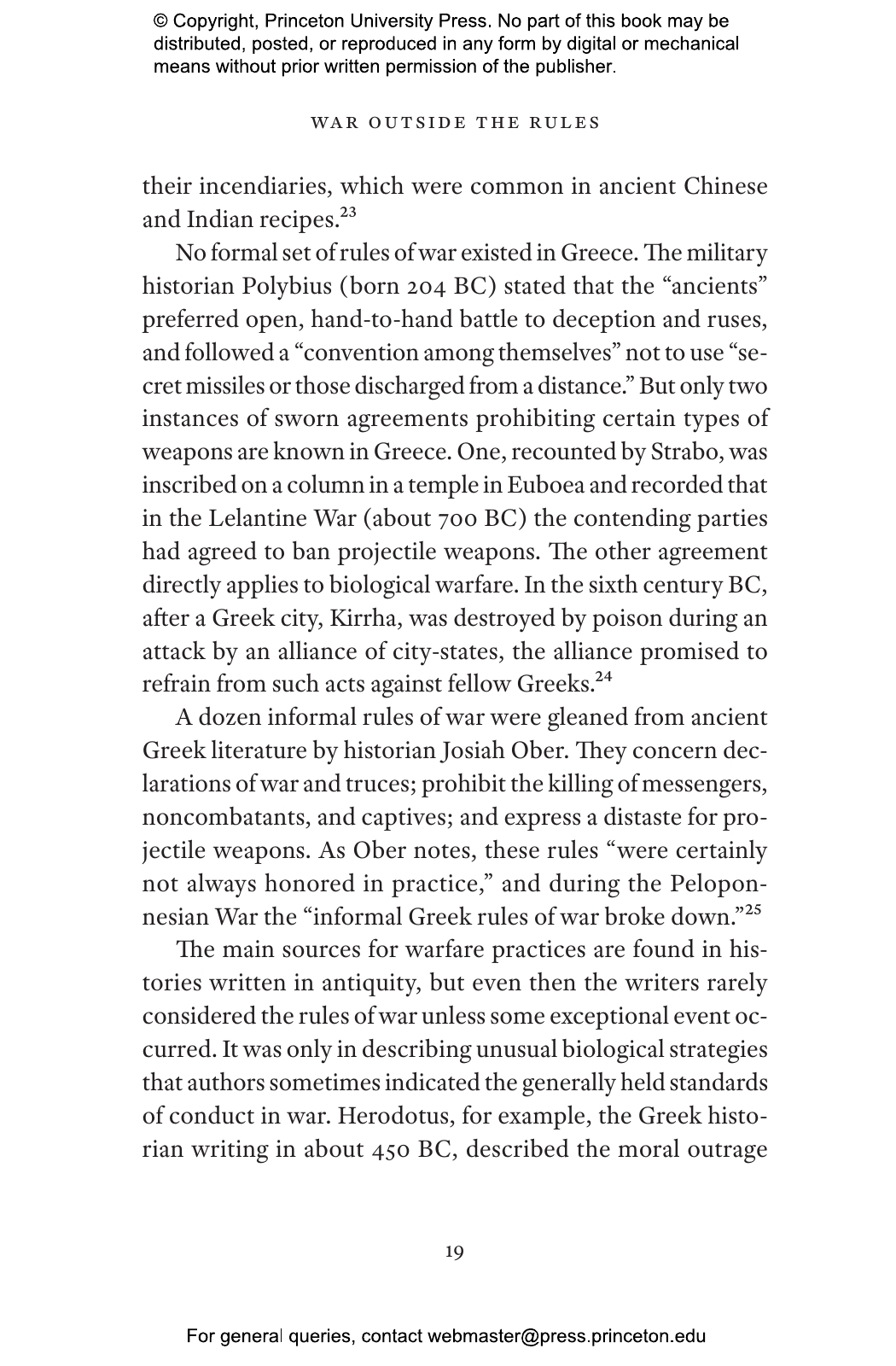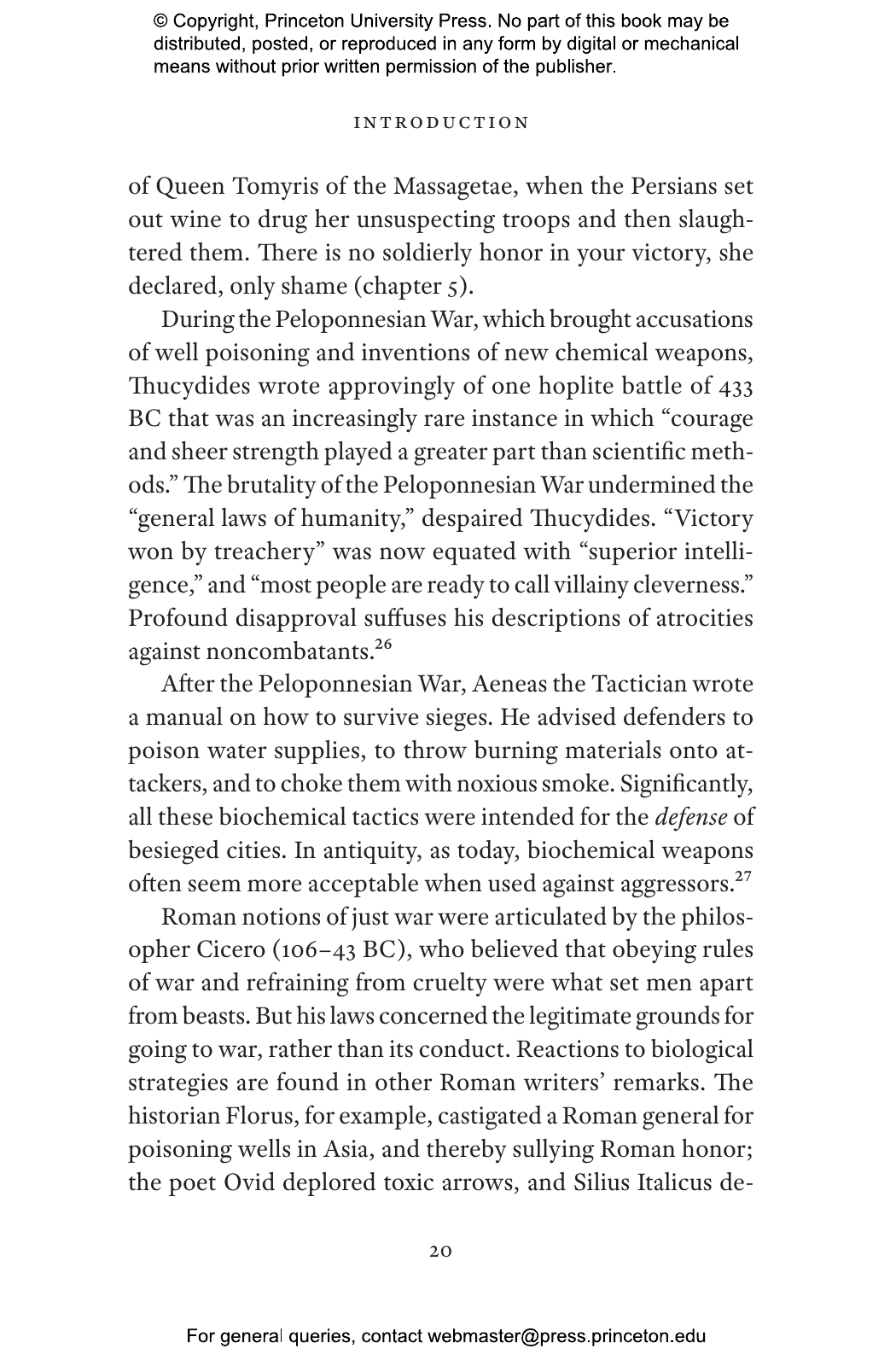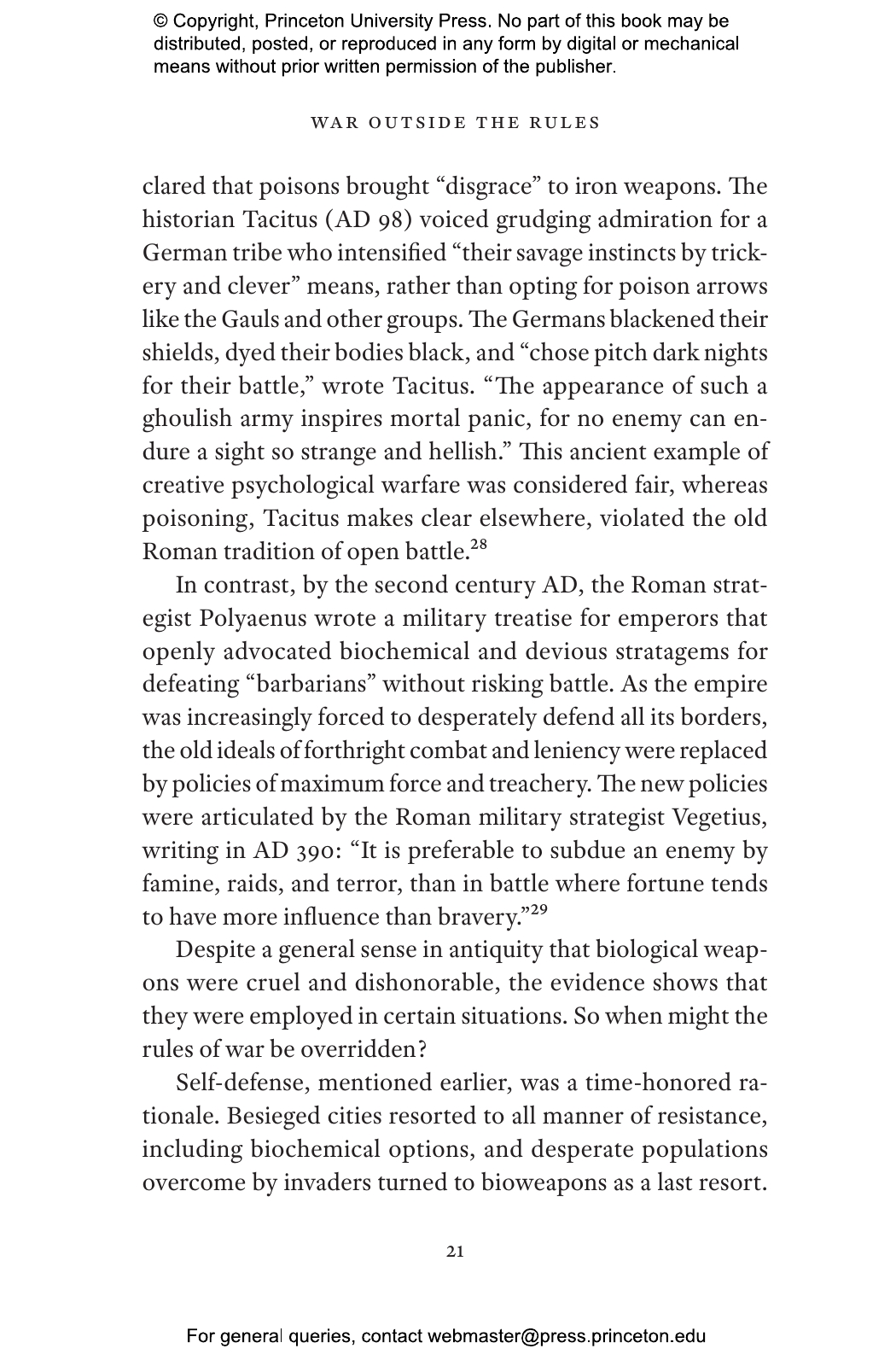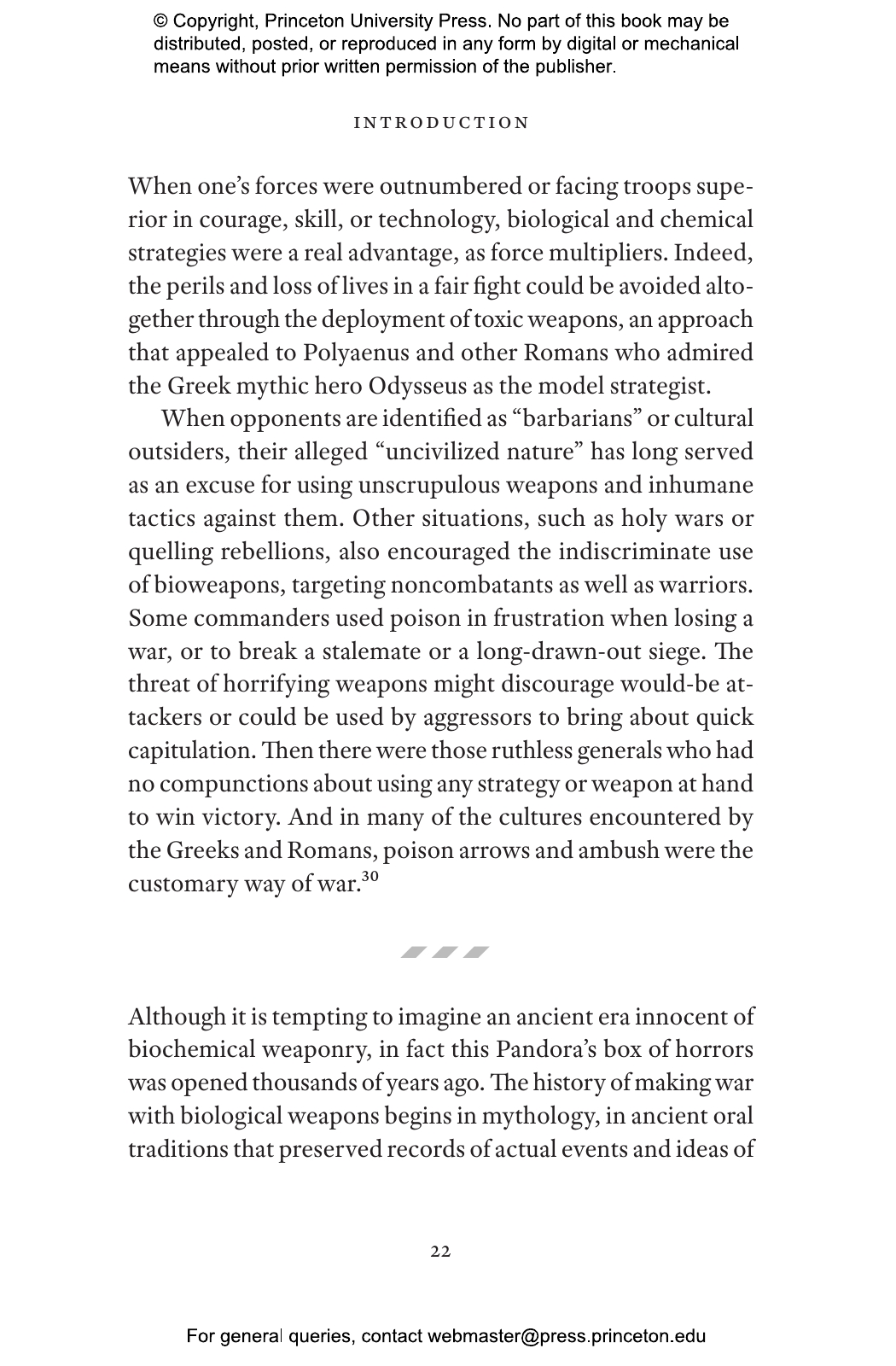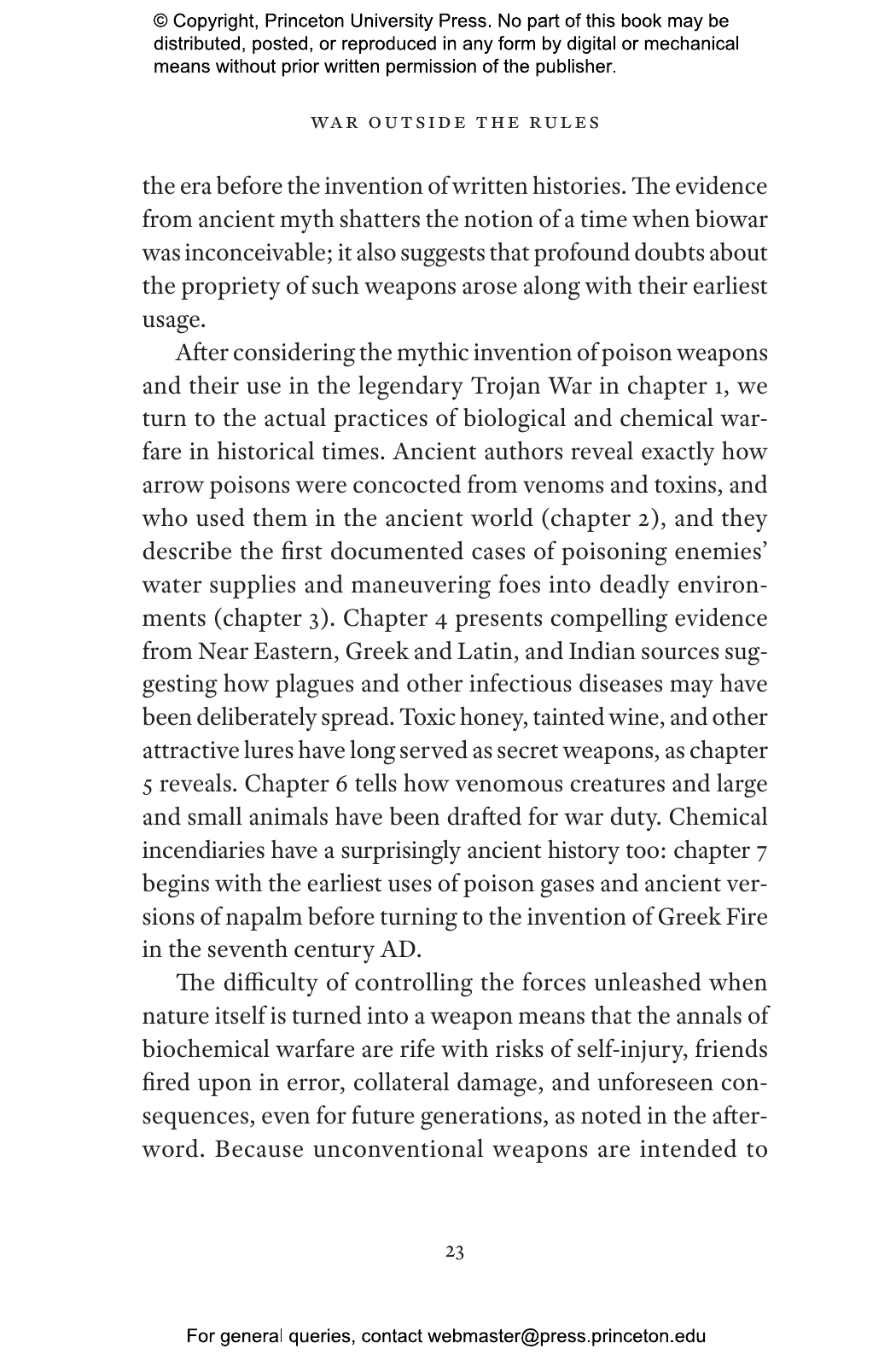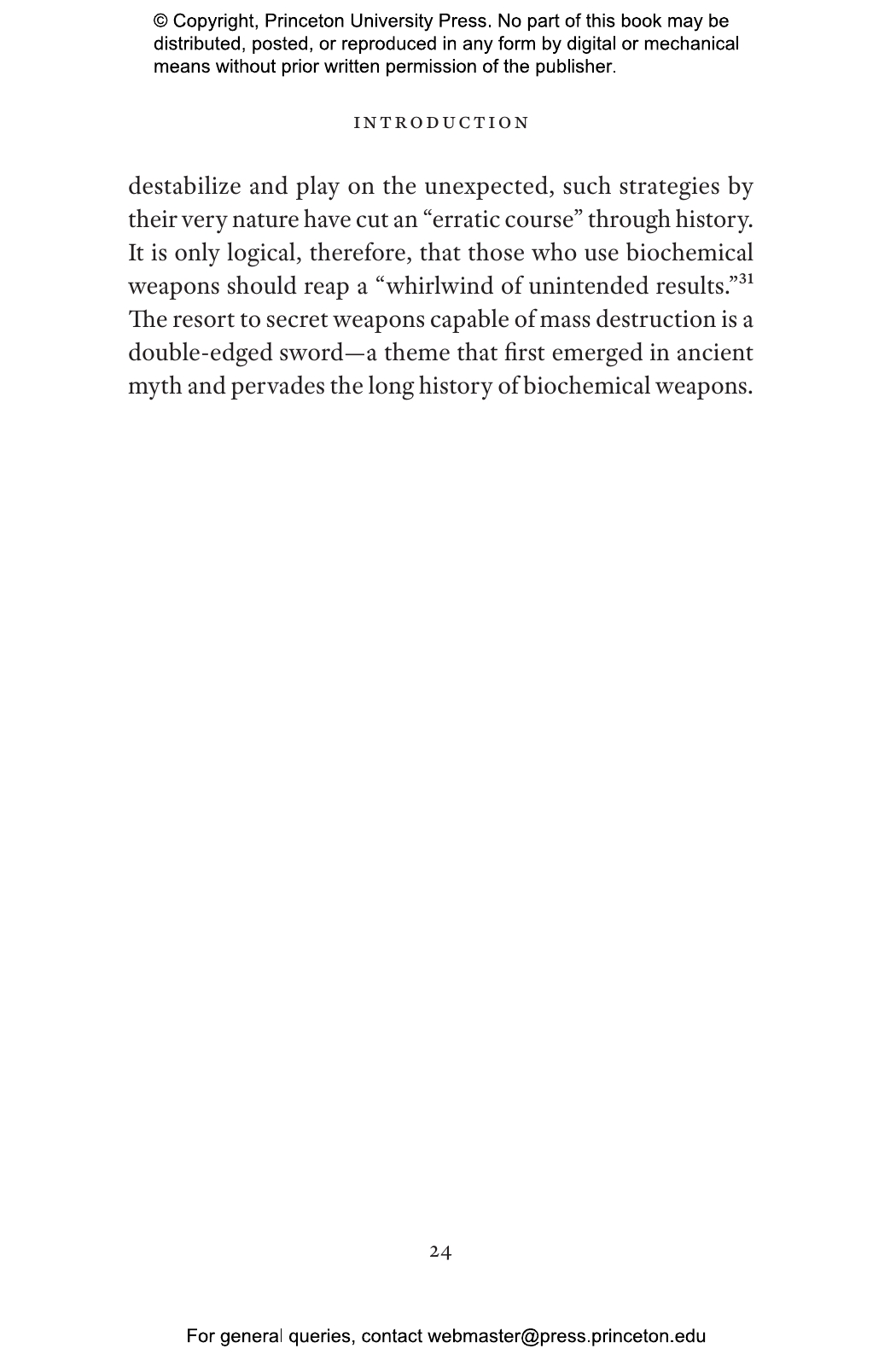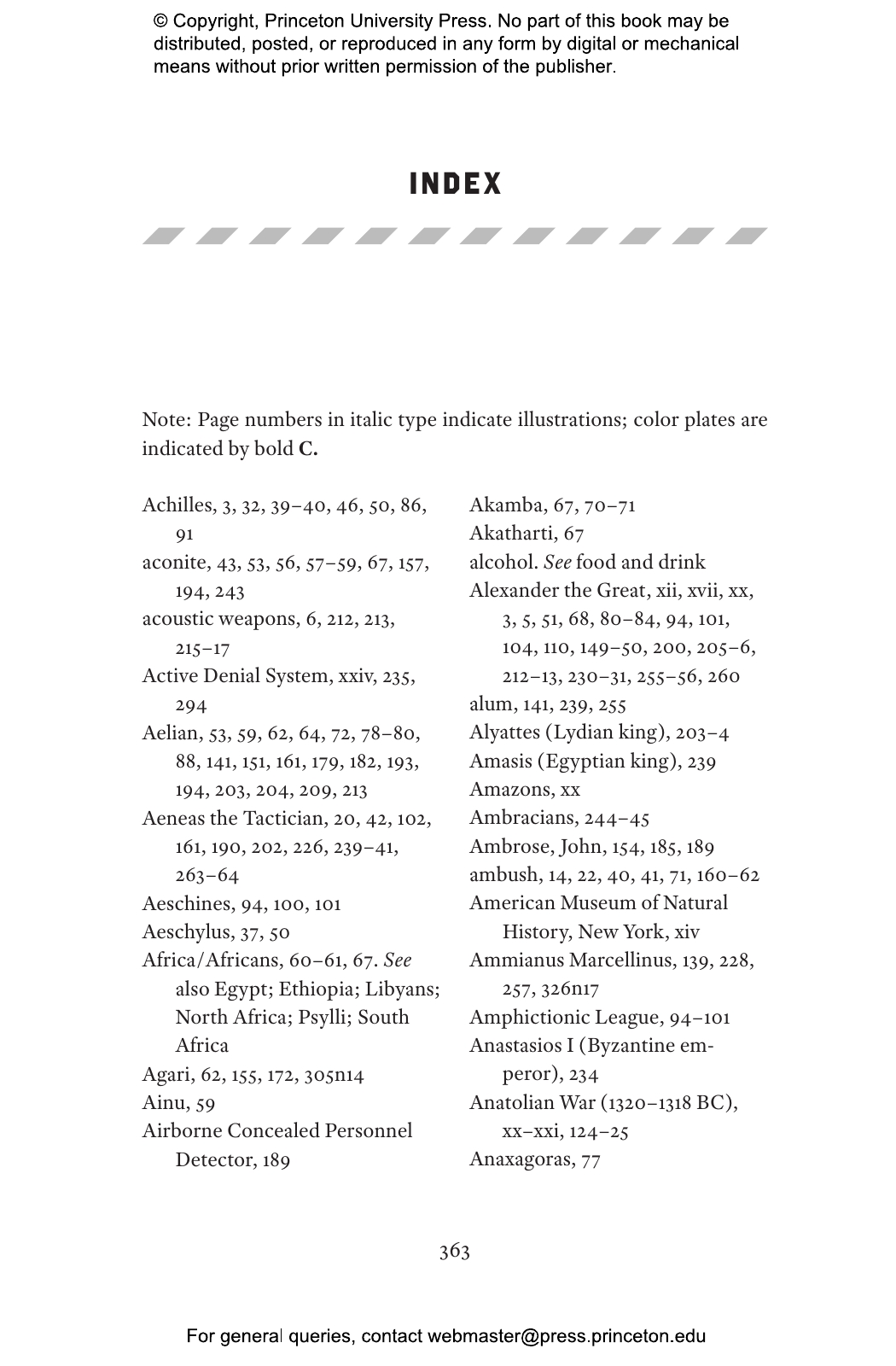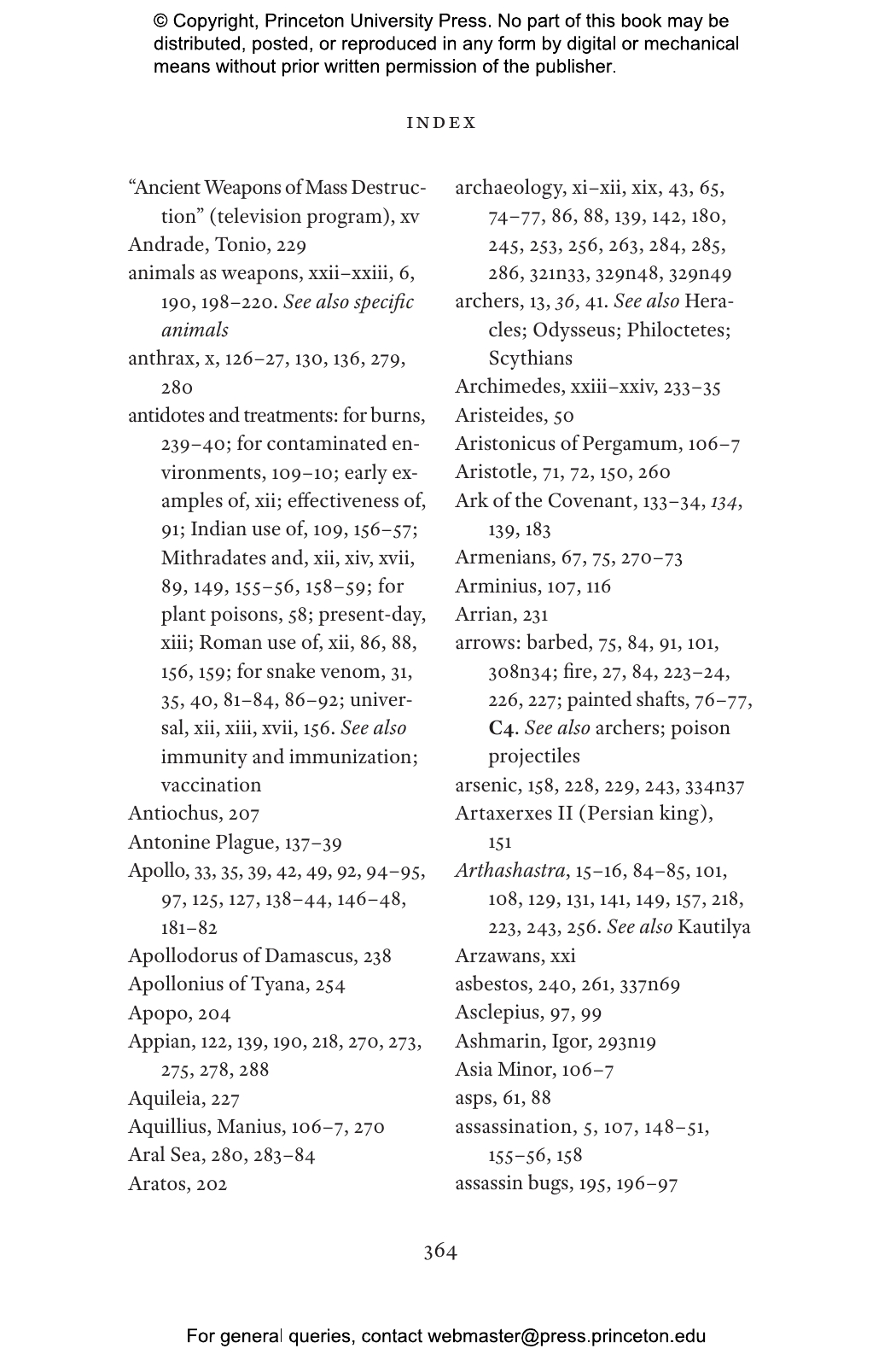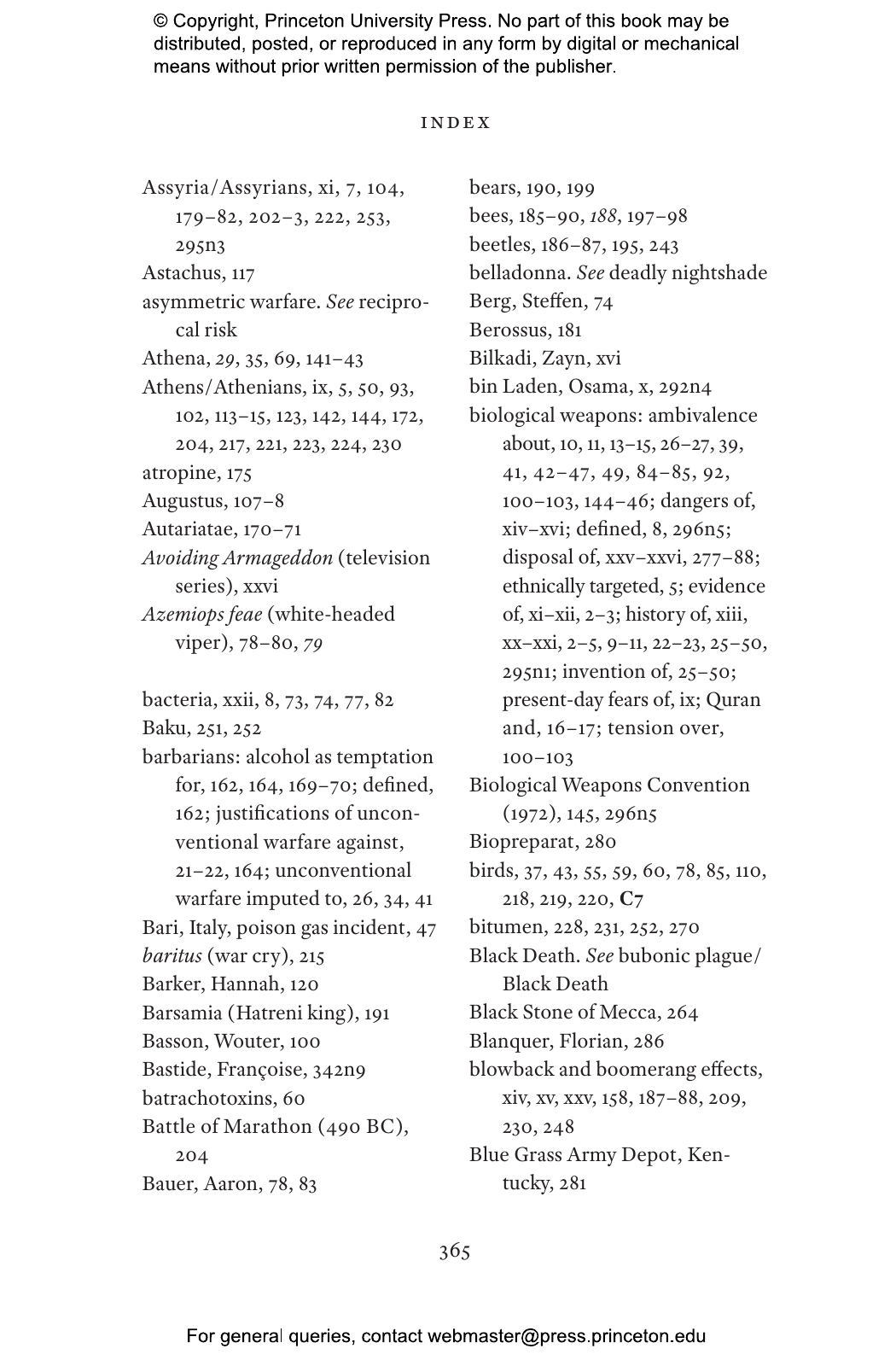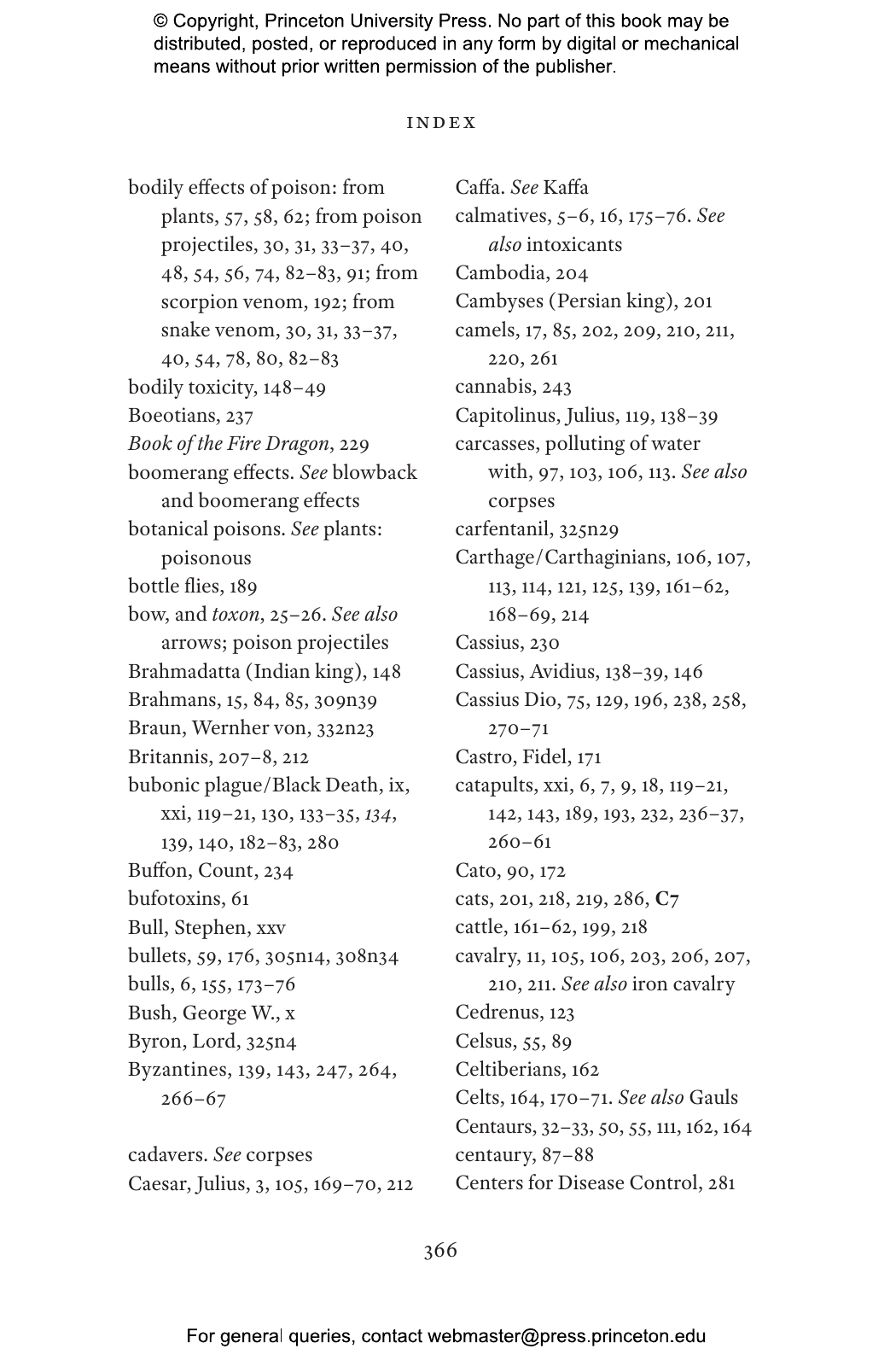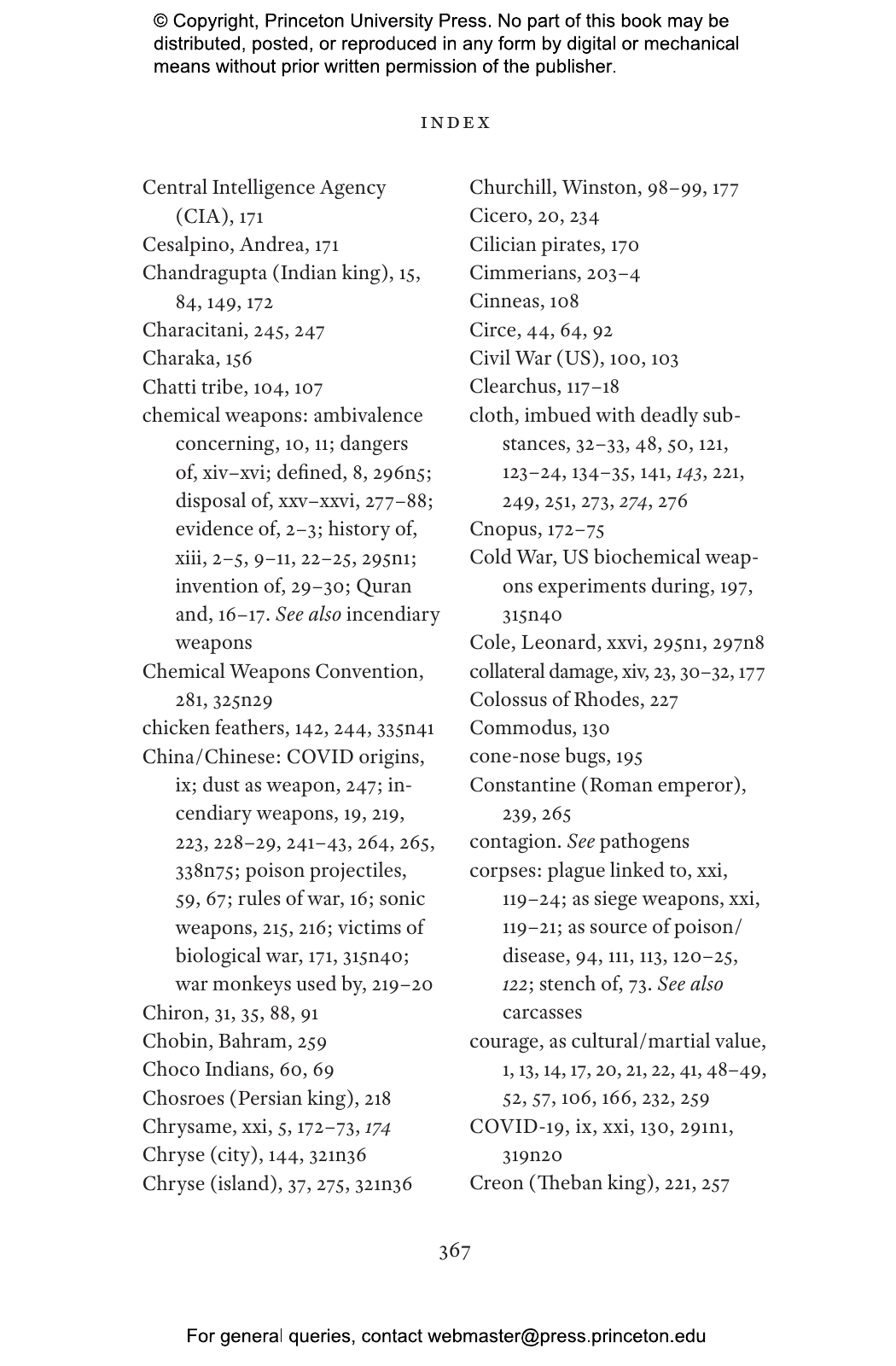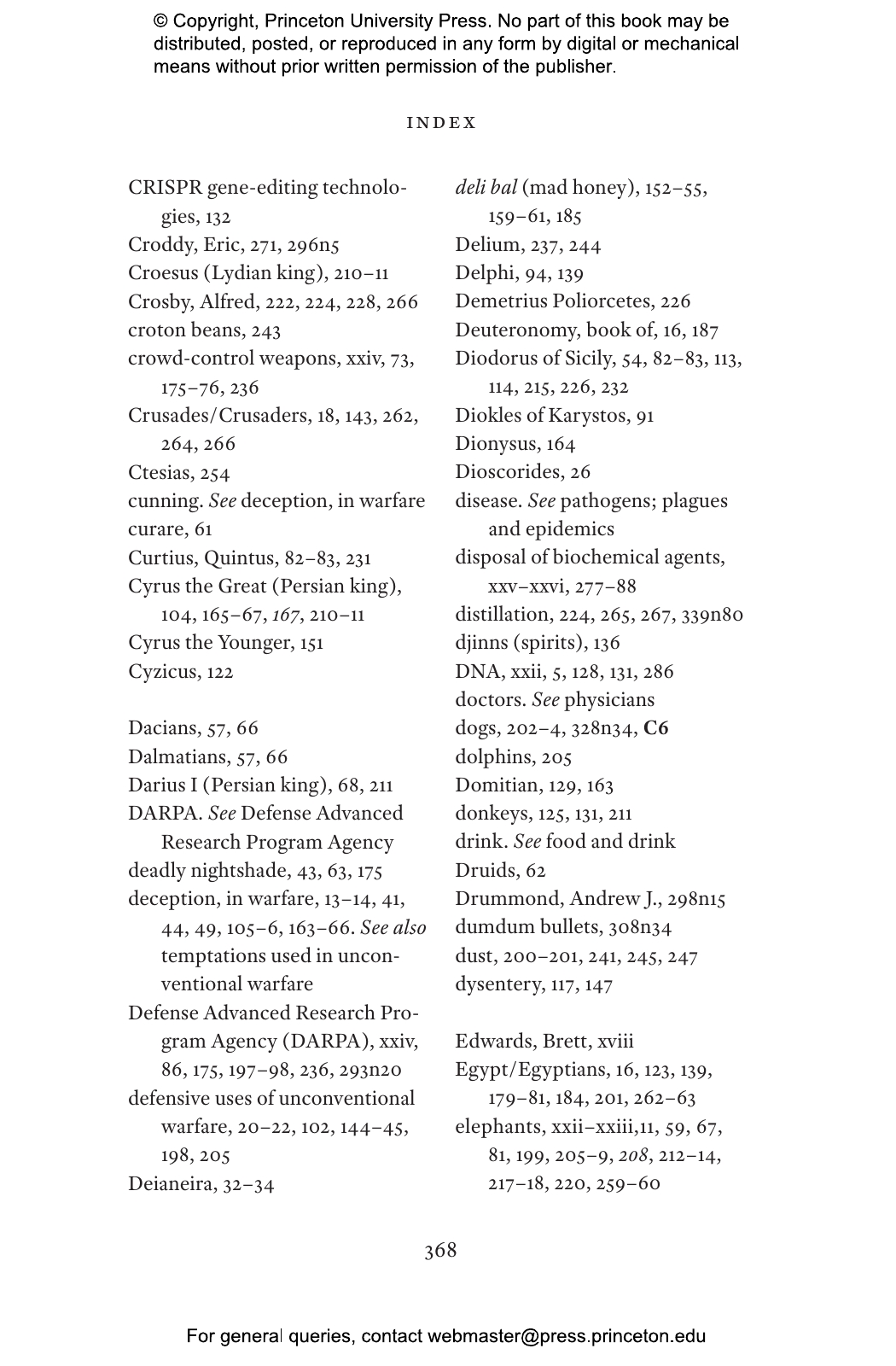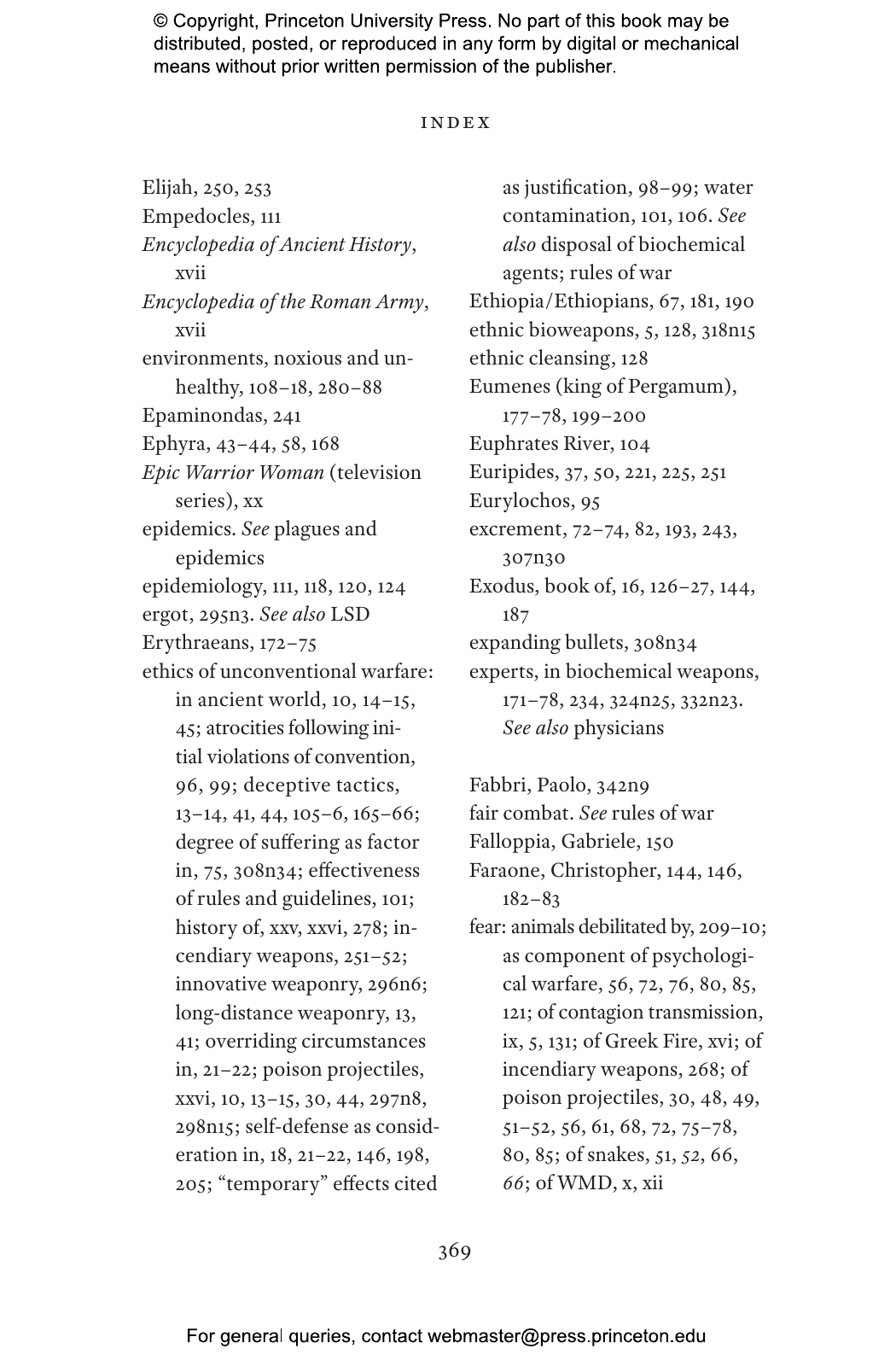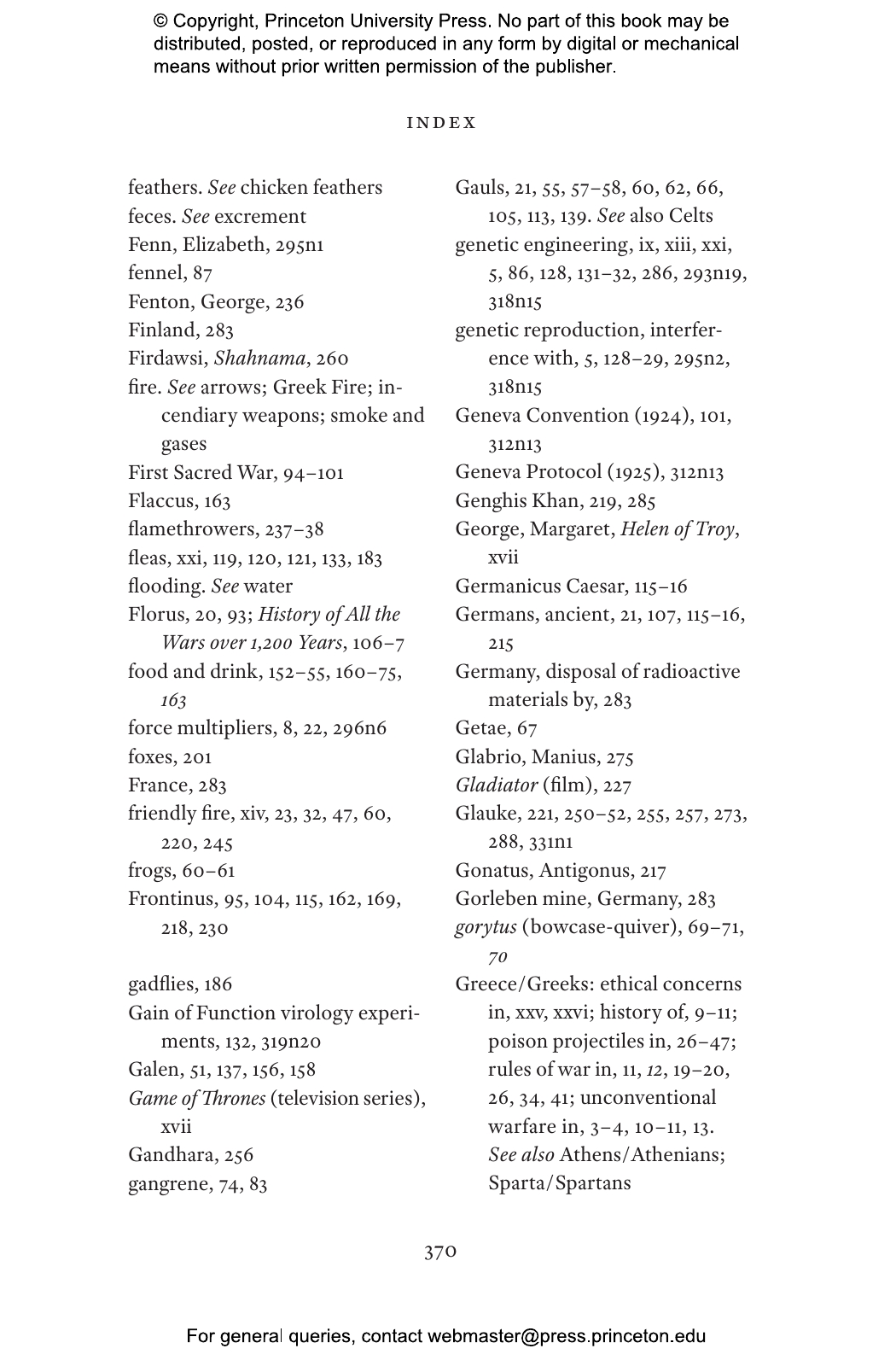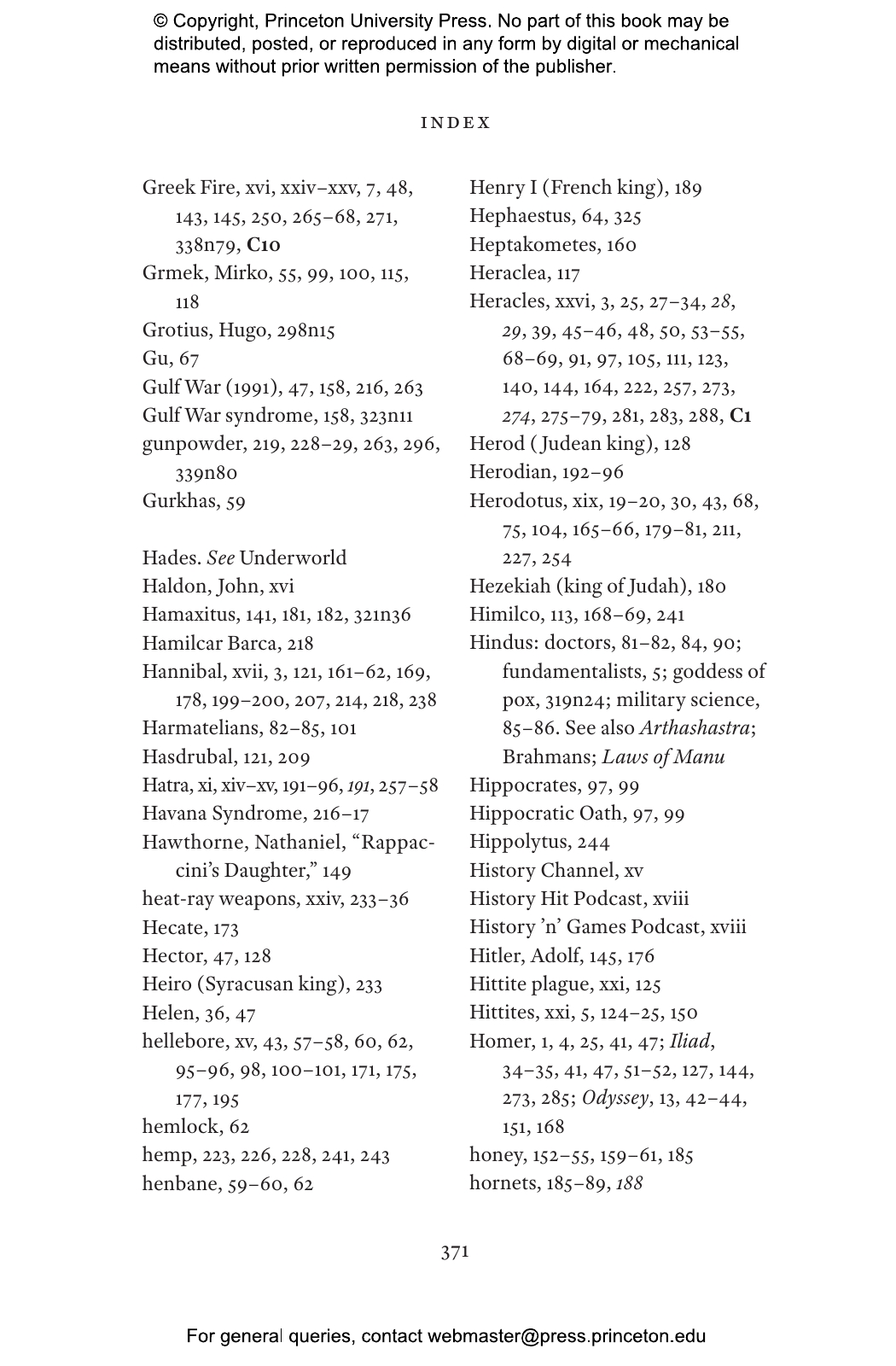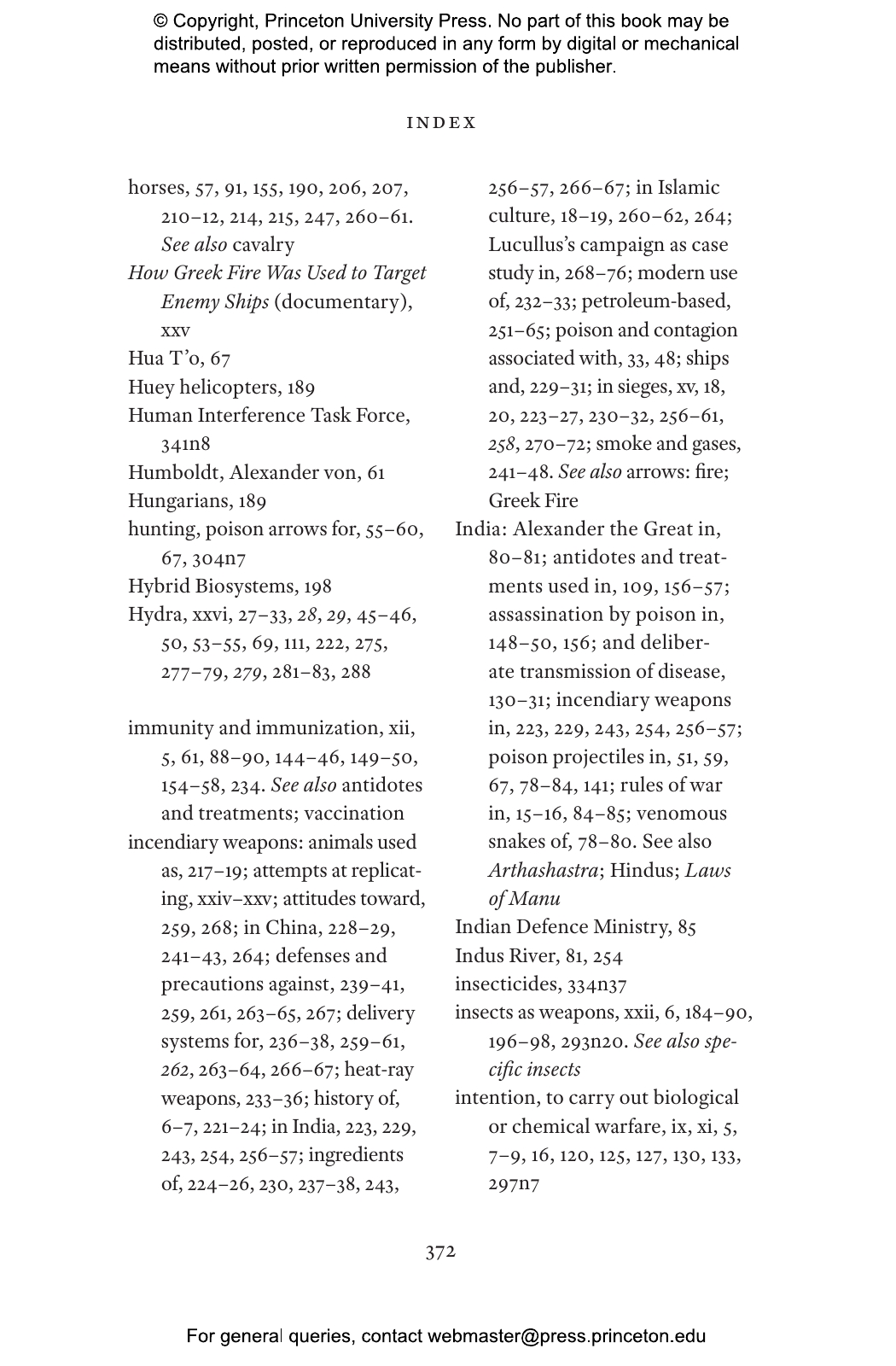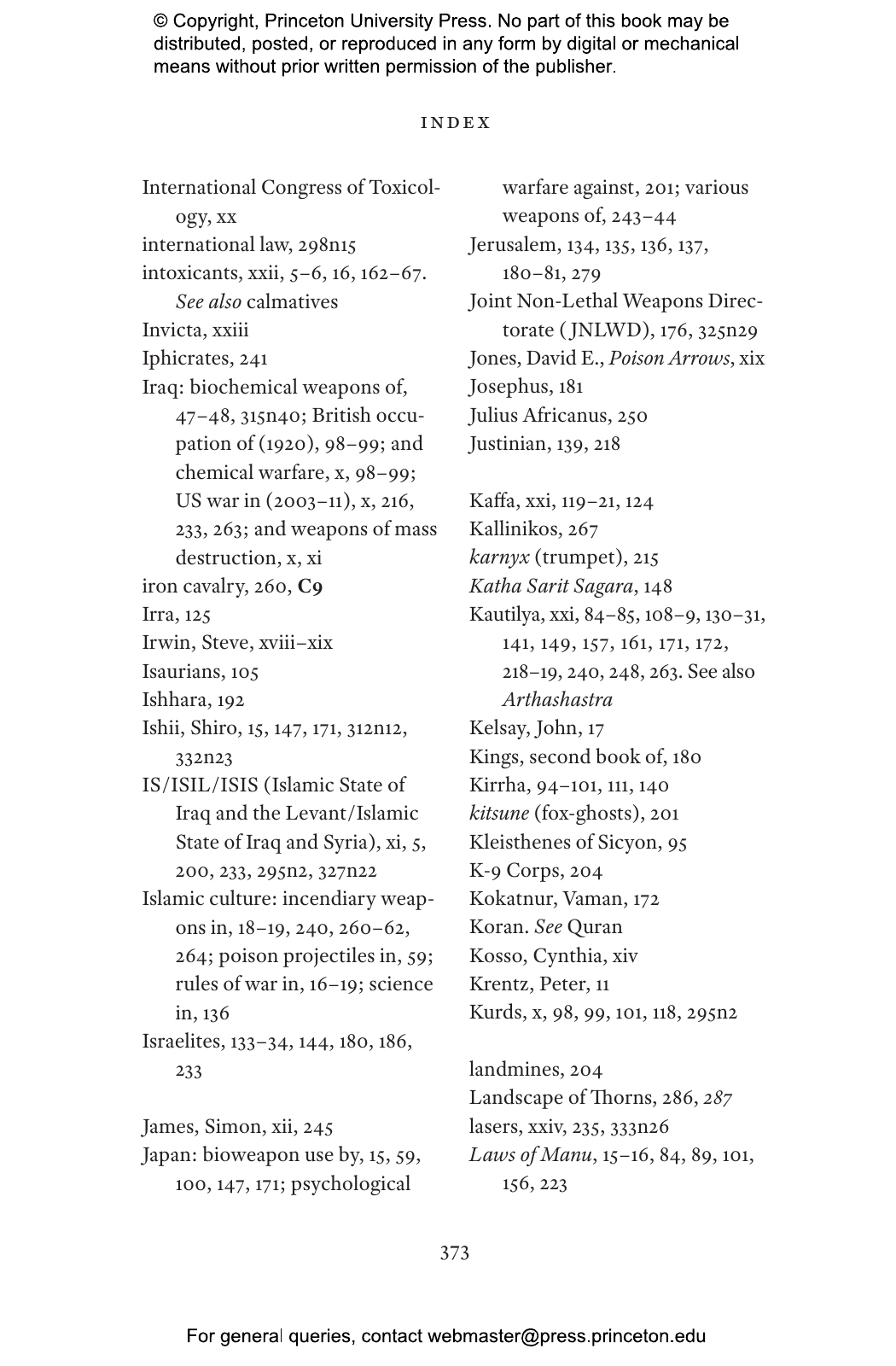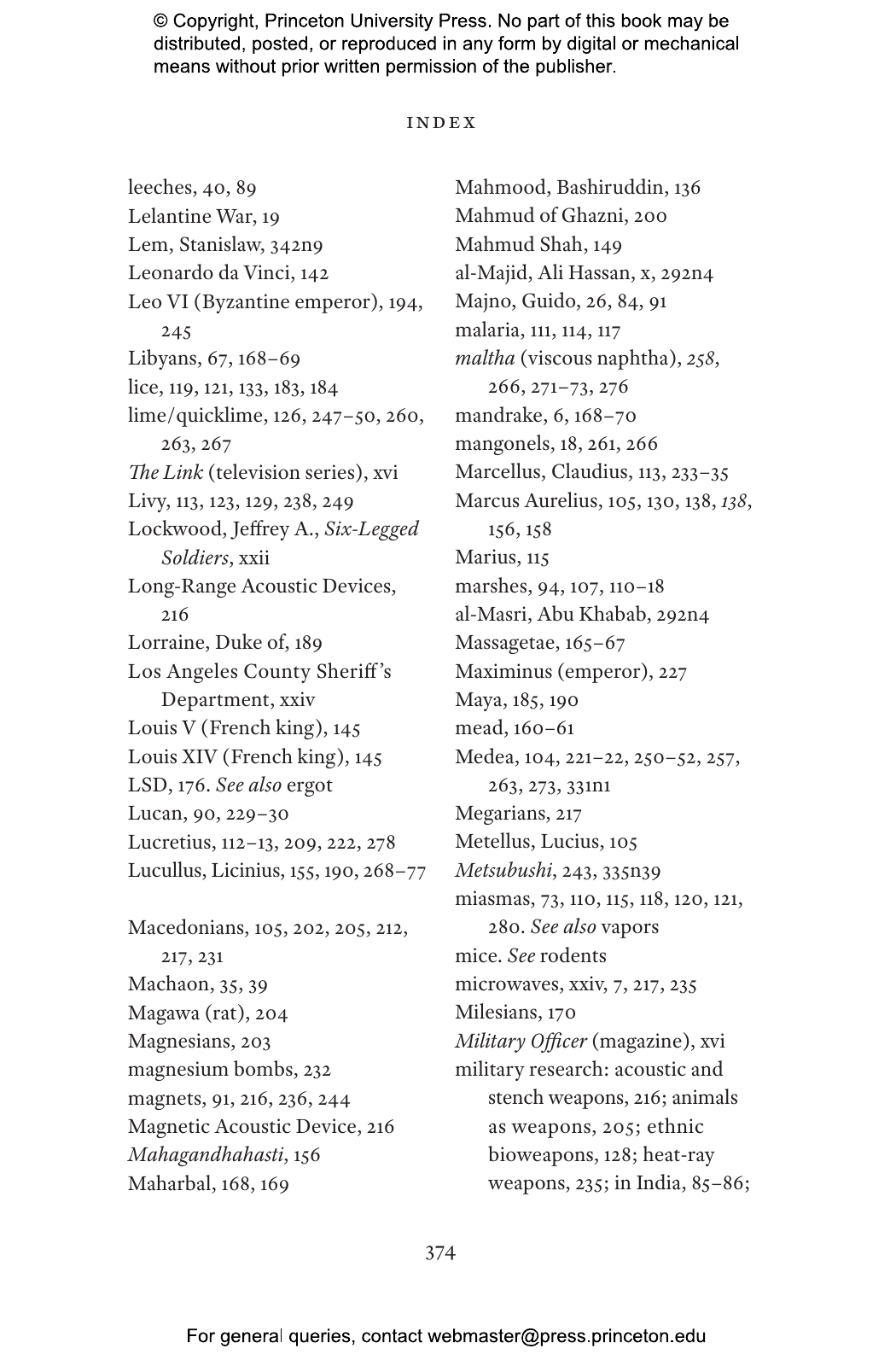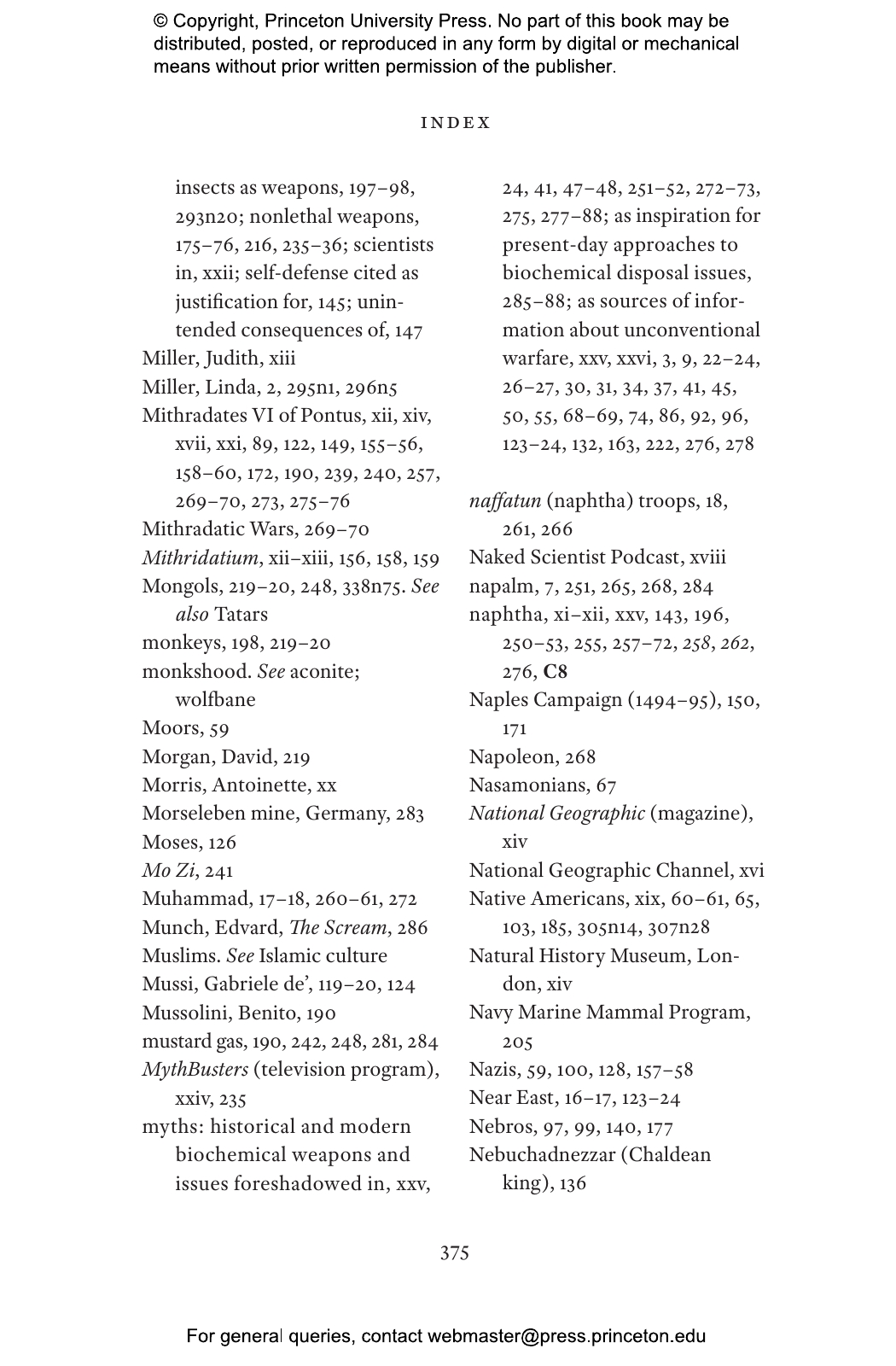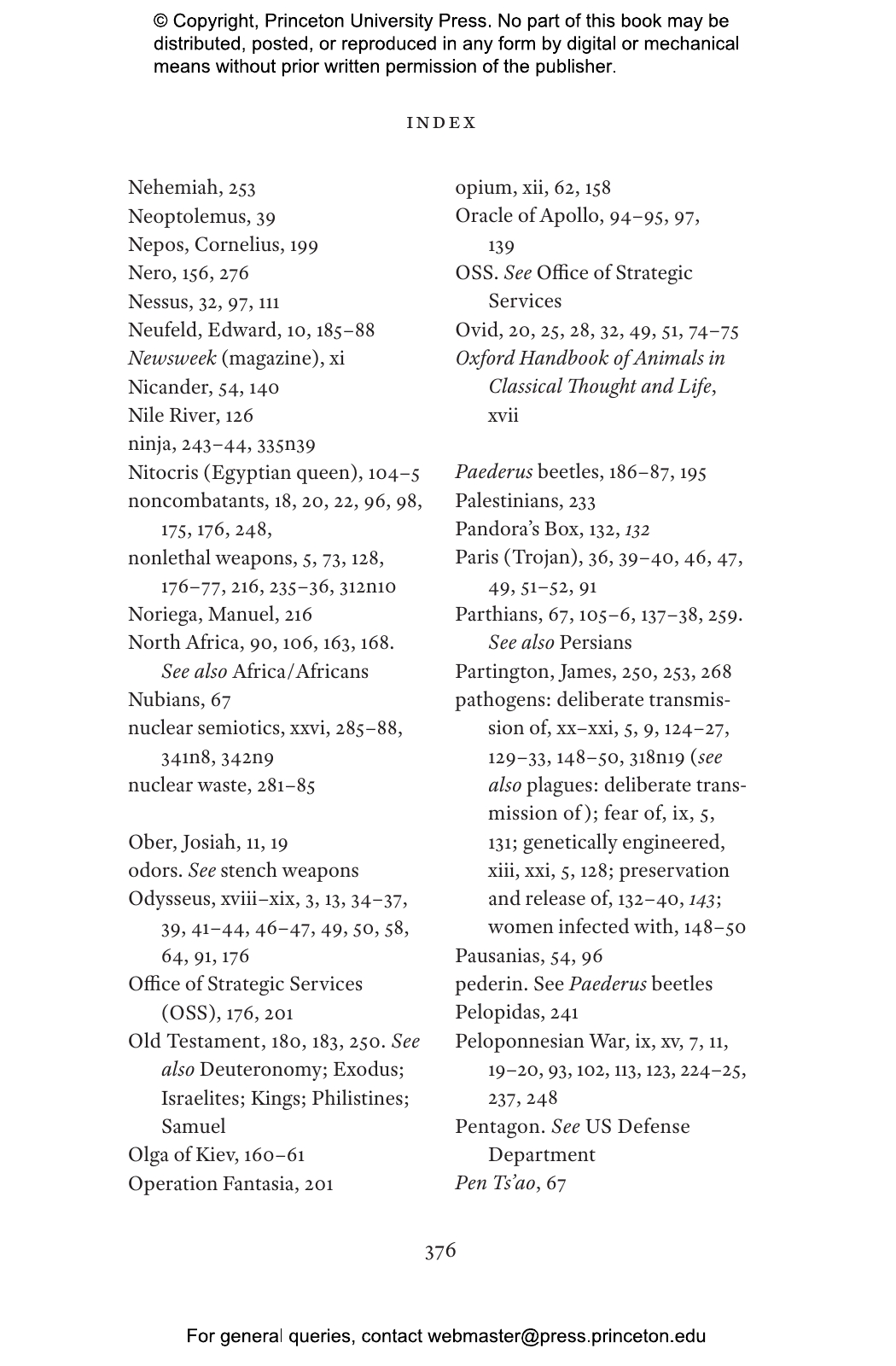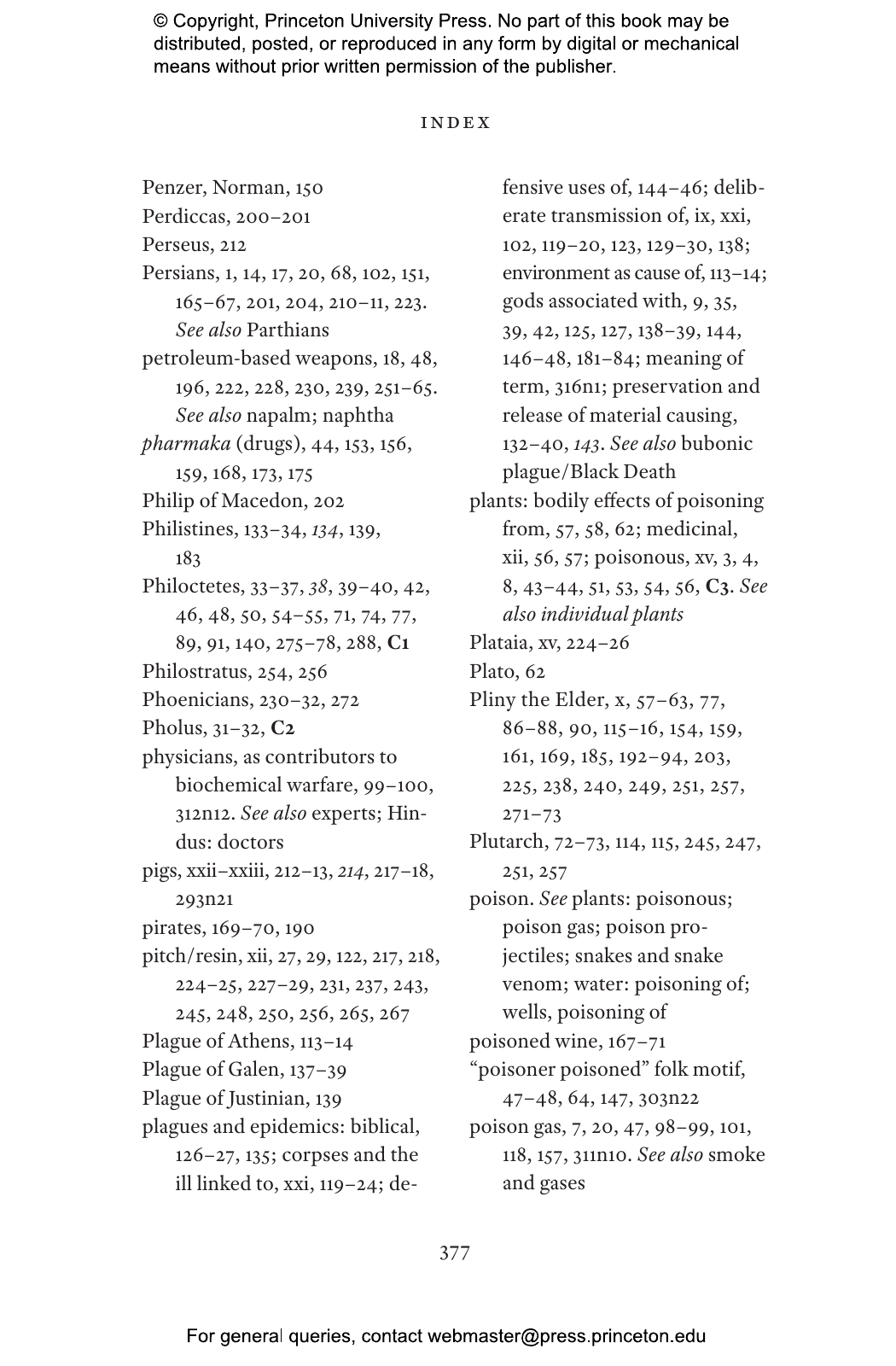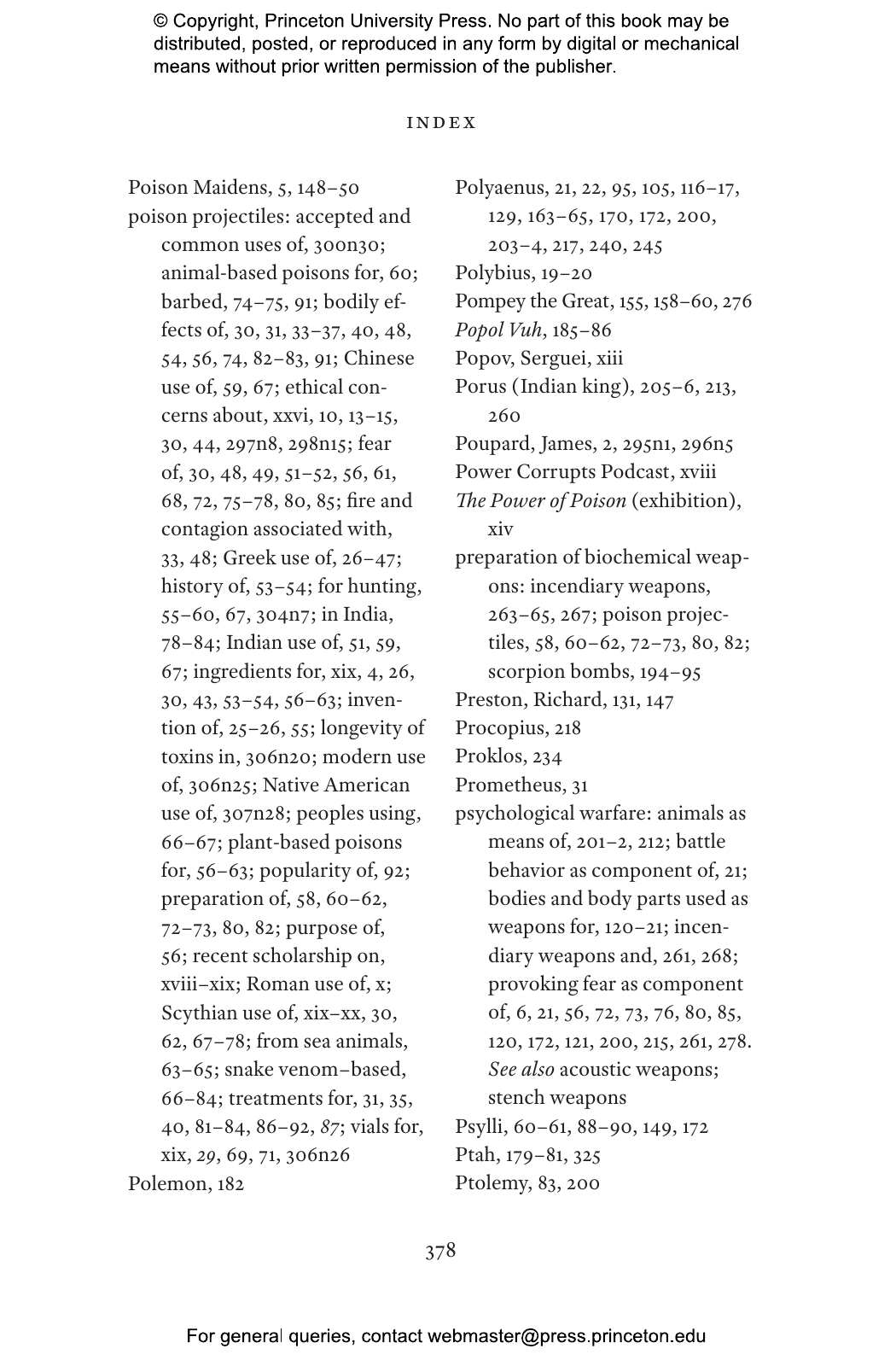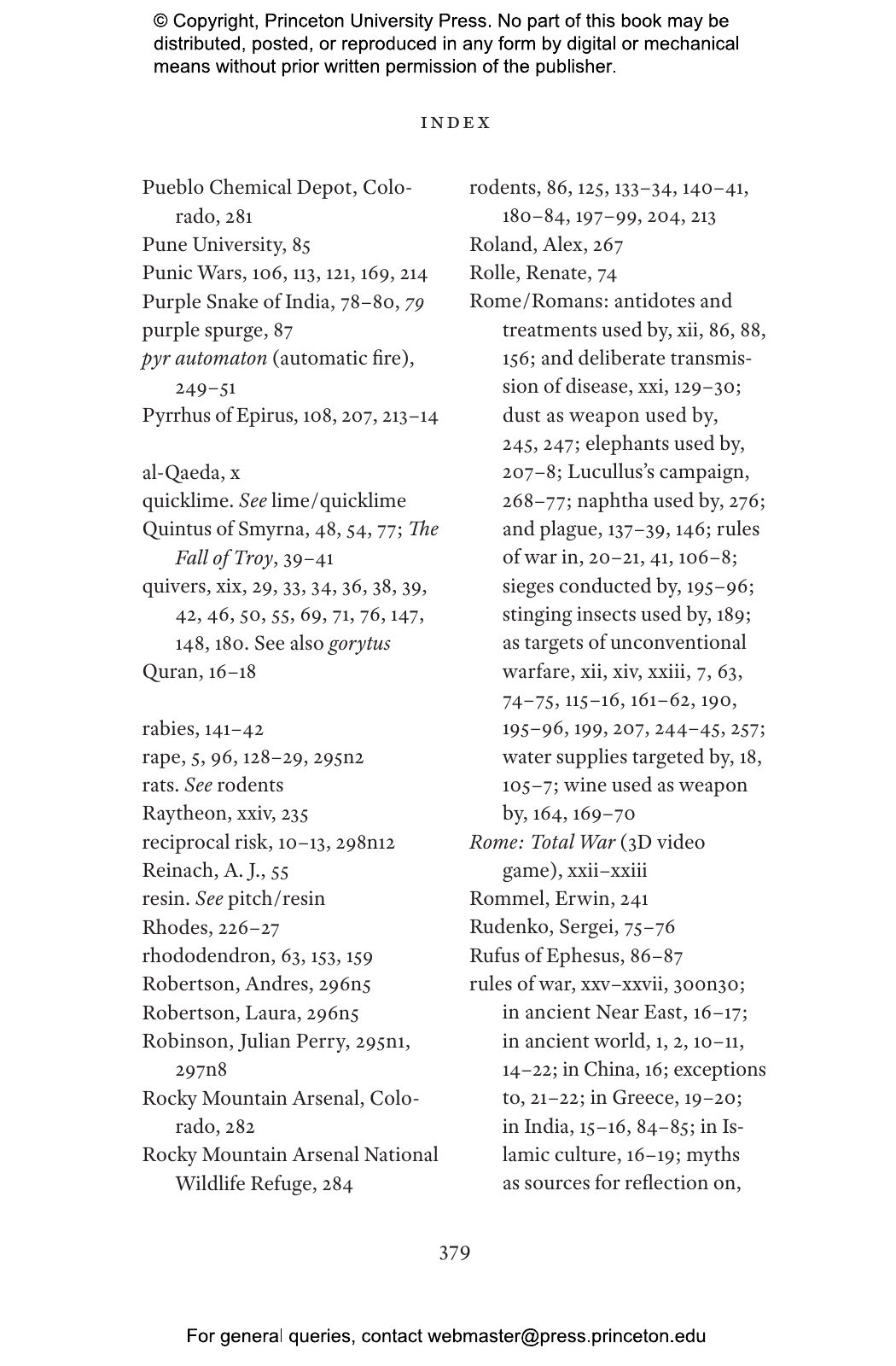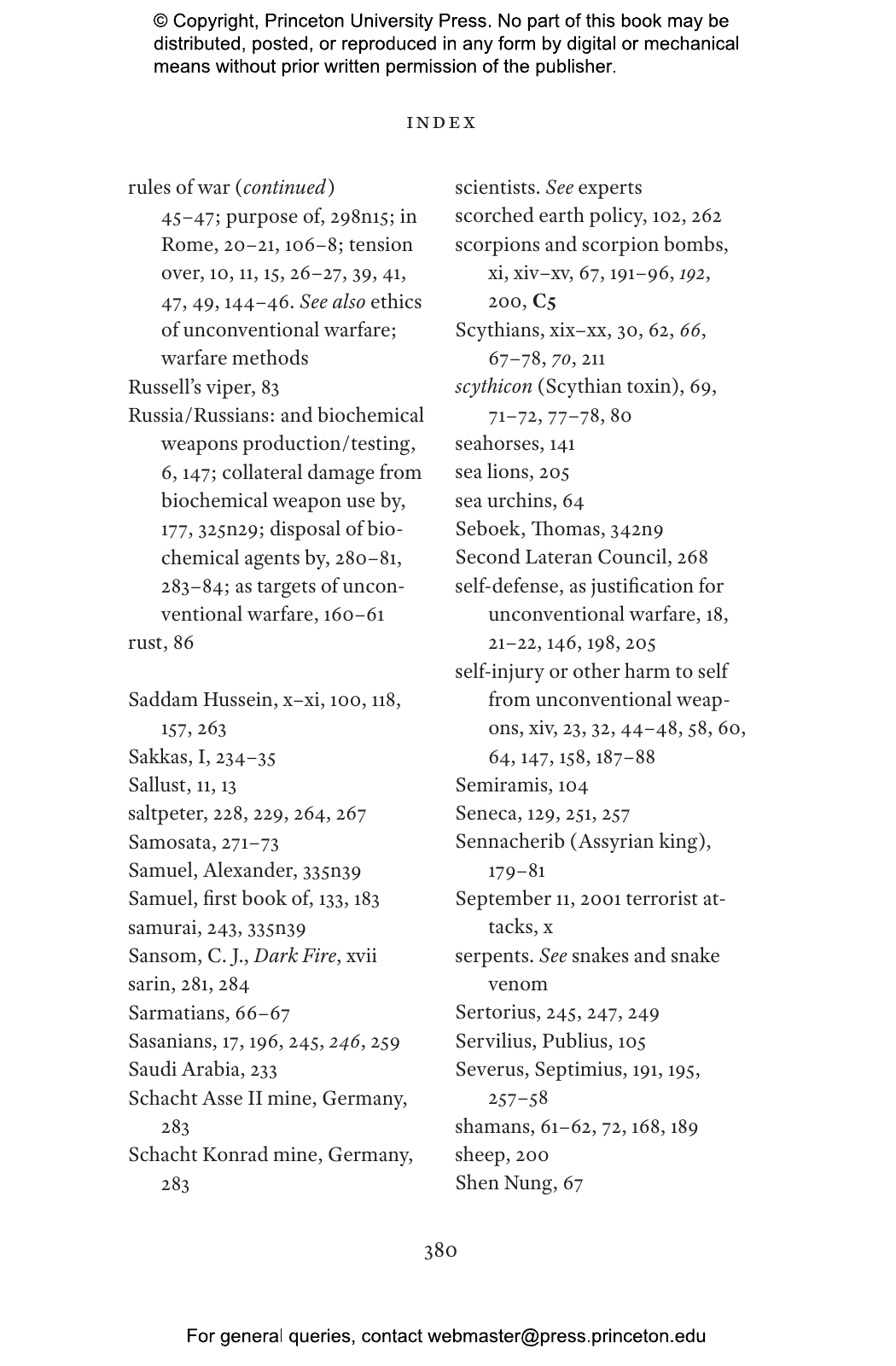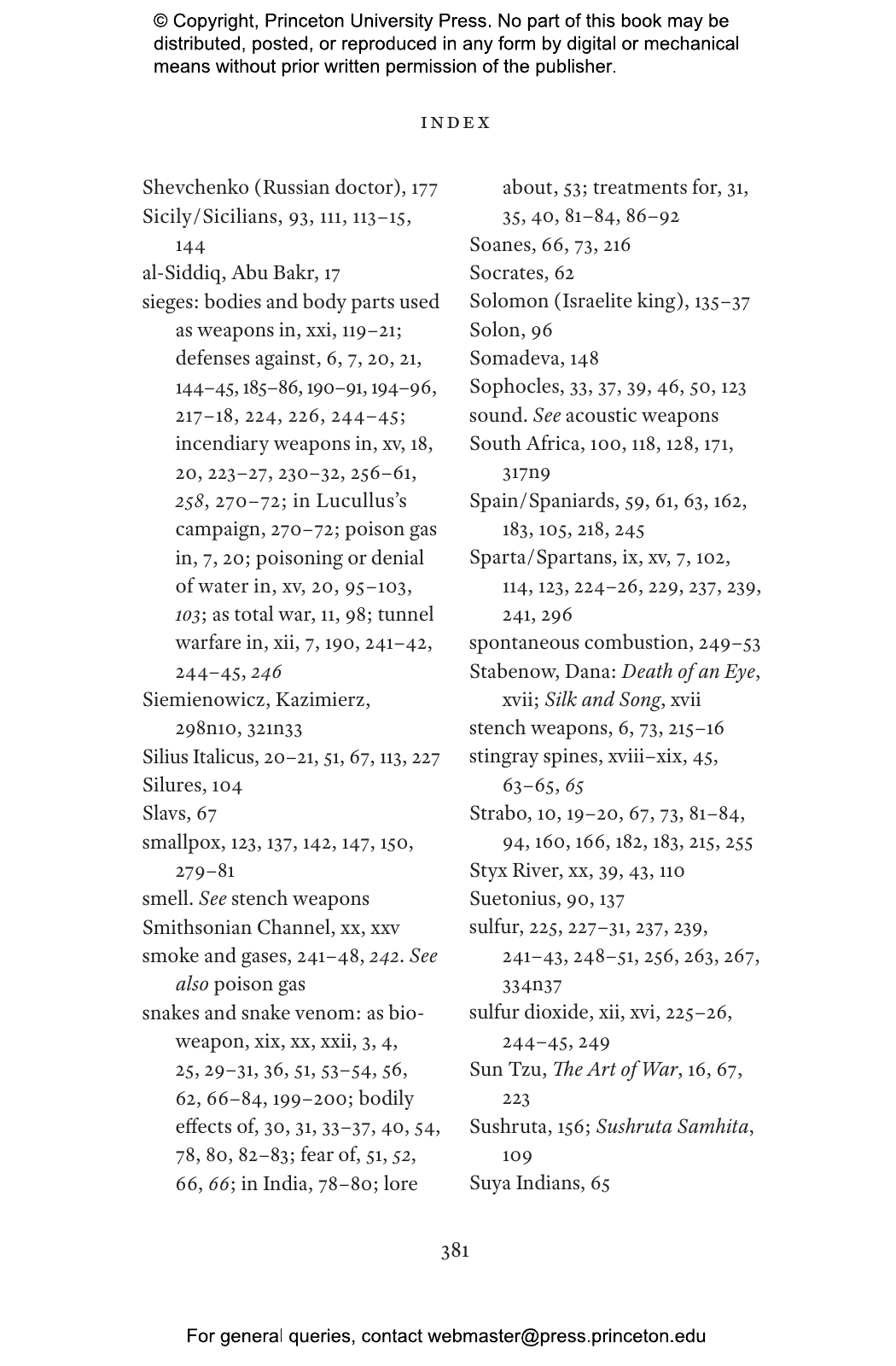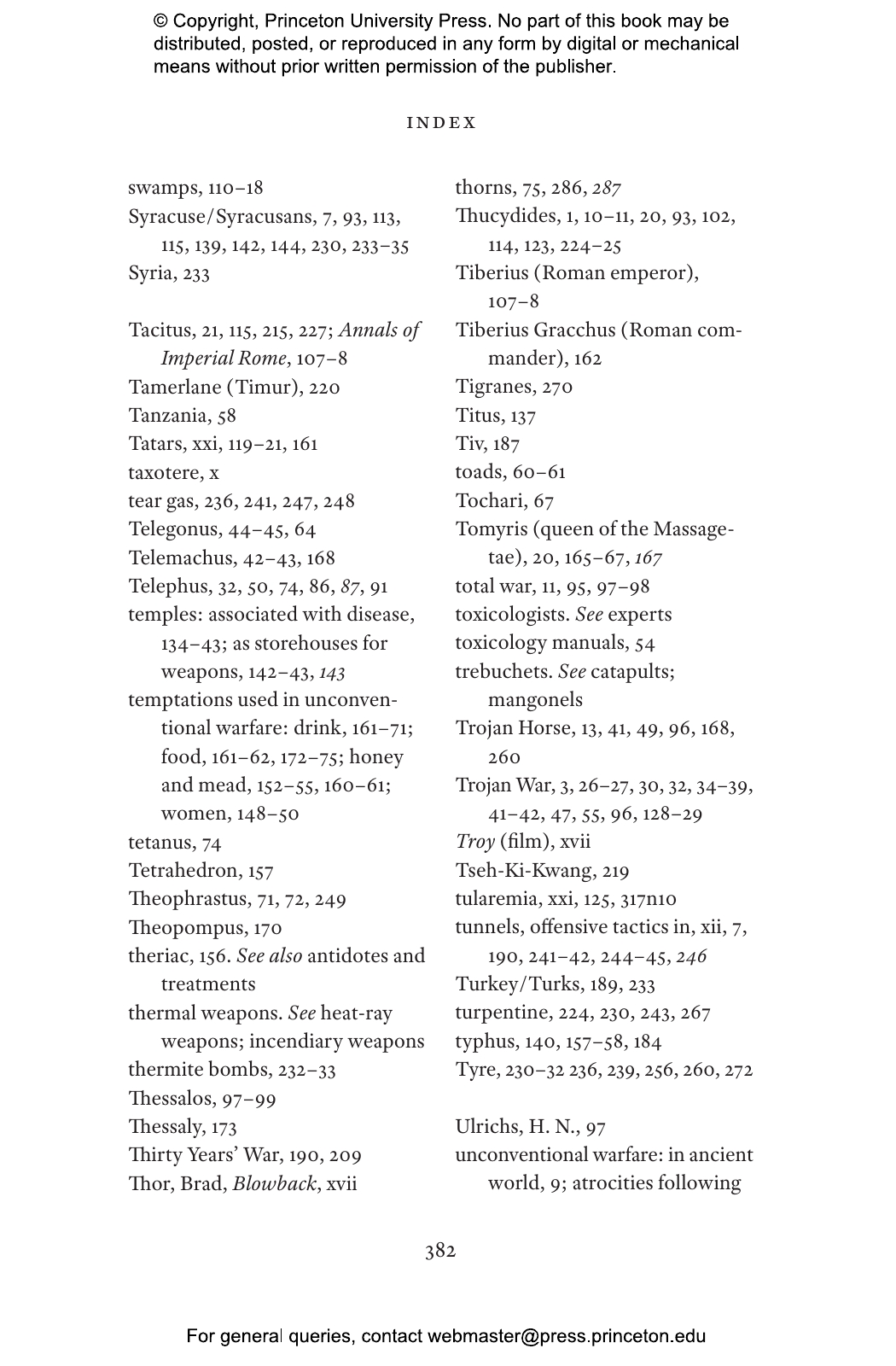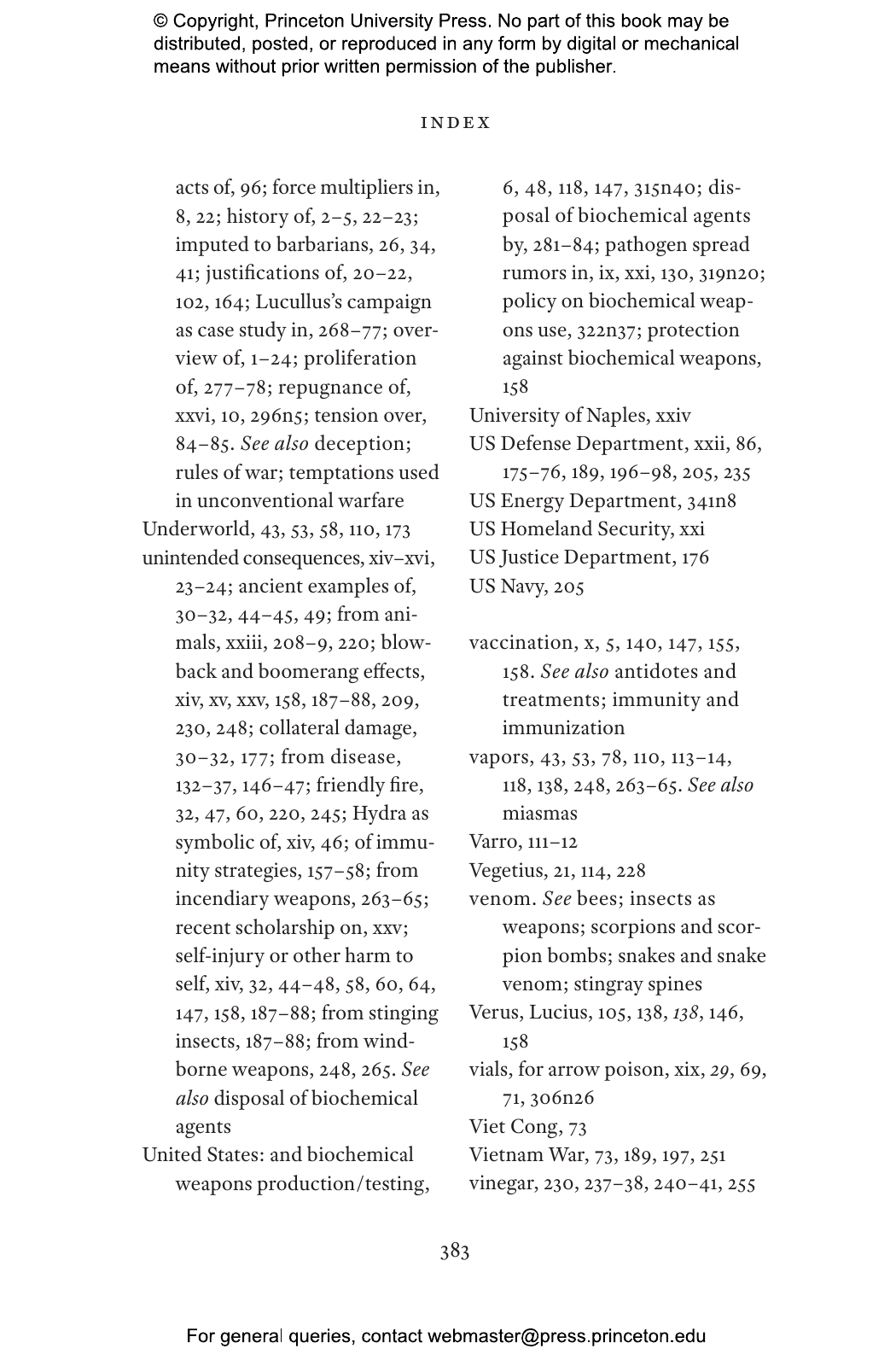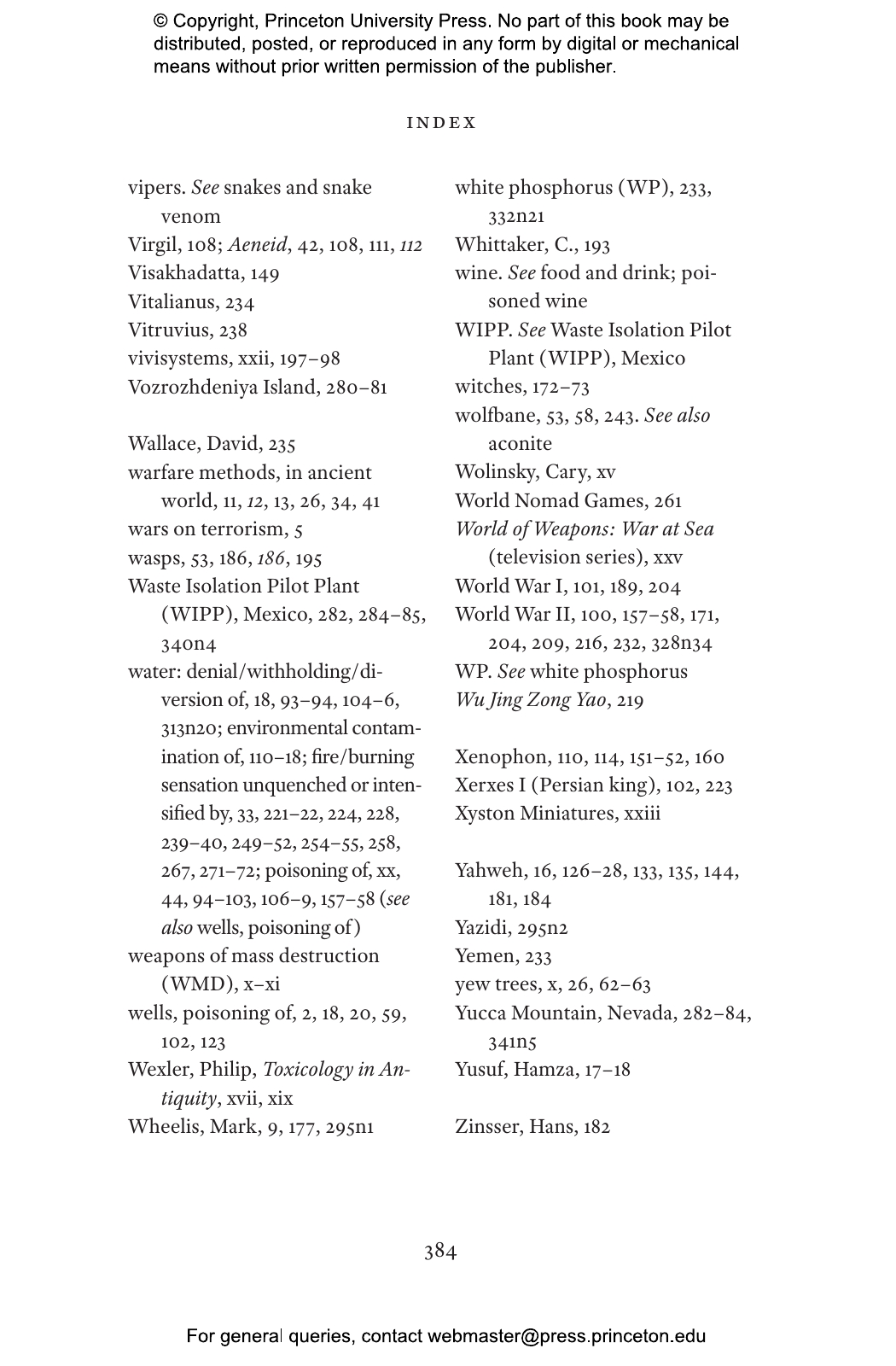Flamethrowers, poison gases, incendiary bombs, the large-scale spreading of disease: are these terrifying agents of warfare modern inventions? Not by a long shot. In this riveting history of the origins of unconventional war, Adrienne Mayor shows that cultures around the world have used biological and chemical weapons for thousands of years—and debated the morality of doing so. Drawing extraordinary connections between the mythical worlds of Hercules and the Trojan War, the accounts of Herodotus and Thucydides, and modern methods of war and terrorism, this richly illustrated history catapults readers into the dark and fascinating realm of ancient war and mythic treachery.
"Rich and entertaining."—Mary Carmichael, Newsweek
"[An] illuminating history of warfare. . . . Greek Fire also excavates ancient attitudes toward biological and chemical arms that are startlingly relevant today. . . . Mayor is comprehensive about the history, ethics, and science of early biological and chemical weapons. Skillfully combing ancient texts, she describes cultures as varied as the Scythians and the Chinese with their chemical fire lances and poison ‘vapors.’ Mayor shows most cultures devised exotic weaponry—and debated their use."—Jay Currie, Christian Science Monitor
"Mayor marshals not just myth, but also the writing of ancient authors and evidence from archaeological digs to show that biological and chemical weapons saw action in battles long before the modern era."—John Wilford Noble, New York Times
"Recounts in lively, sometimes darkly comic detail the diabolical stratagems devised by devious warriors."—Joseph D’Agnese, Discover
"[A] fascinating and engaging book."—Hans van Wees, American Scientist
"This is the kind of book that should confound those who question whether the study of the ancient world has any ‘relevance’ for the present day. At the same time it induces a certain awe in the conventional classicist, whose footsteps follow the trodden paths of scholarship, by reason of its impressive range of reference. . . . This book shows that ancient warfare was every bit as vicious and unscrupulous as warfare in the nuclear age. . . . A fascinating chapter of Mayor’s book is devoted to poisons, and might become the standard basic treatment of poisons in antiquity. . . . Beautifully written."—Richard Stoneman, Classical Review
"Superbly researched."—Stuart Fleming, Expedition
"Highly recommended."—Zygmunt Dembek, Naval War College Review
"Mayor shows how the ancients’ reactions to biological weapons prefigure contemporary attitudes. . . . [She] spices her astute commentary with diverse opinions about biological weapons."—Booklist
"The book’s many strengths include discussion of how animals, flammables, and poisons were employed on the battlefield. . . . Mayor does an excellent job of illuminating some fascinating and often overlooked methods, strategies, and events of ancient combat."—Library Journal
"[An] eye-opener and page-turner."—Jane Manaster, Seattle Book Review
"The scope of the book is wide-ranging, taking in cultures from around the world, ancient and modern. . . . The depth of research . . . is impressive. The accounts of the use of poisons, plagues, insects, camels, elephants and naptha . . . make this an informative and gripping, if occasionally gruesome, read."—Mike Smith, Classics for All
"[A] fascinating account."—Lawrence D. Freedman, Foreign Affairs
"Thought-provoking …. it is the product of rigorous research and has much to say."—Ellie Mackin Roberts, Times Literary Supplement
“This revised and updated edition of Adrienne Mayor’s trailblazing study of ancient biological and chemical weapons couldn’t be timelier. Every page is full of insight, originality, and erudition, all delivered in powerful prose.”—Barry Strauss, author of The War That Made the Roman Empire: Antony, Cleopatra, and Octavian at Actium
“A gift for any writer of historical fiction and any student of human history. A fascinating and horrifying read.”—Dana Stabenow, author of A Cold Day for Murder: A Kate Shugak Investigation
